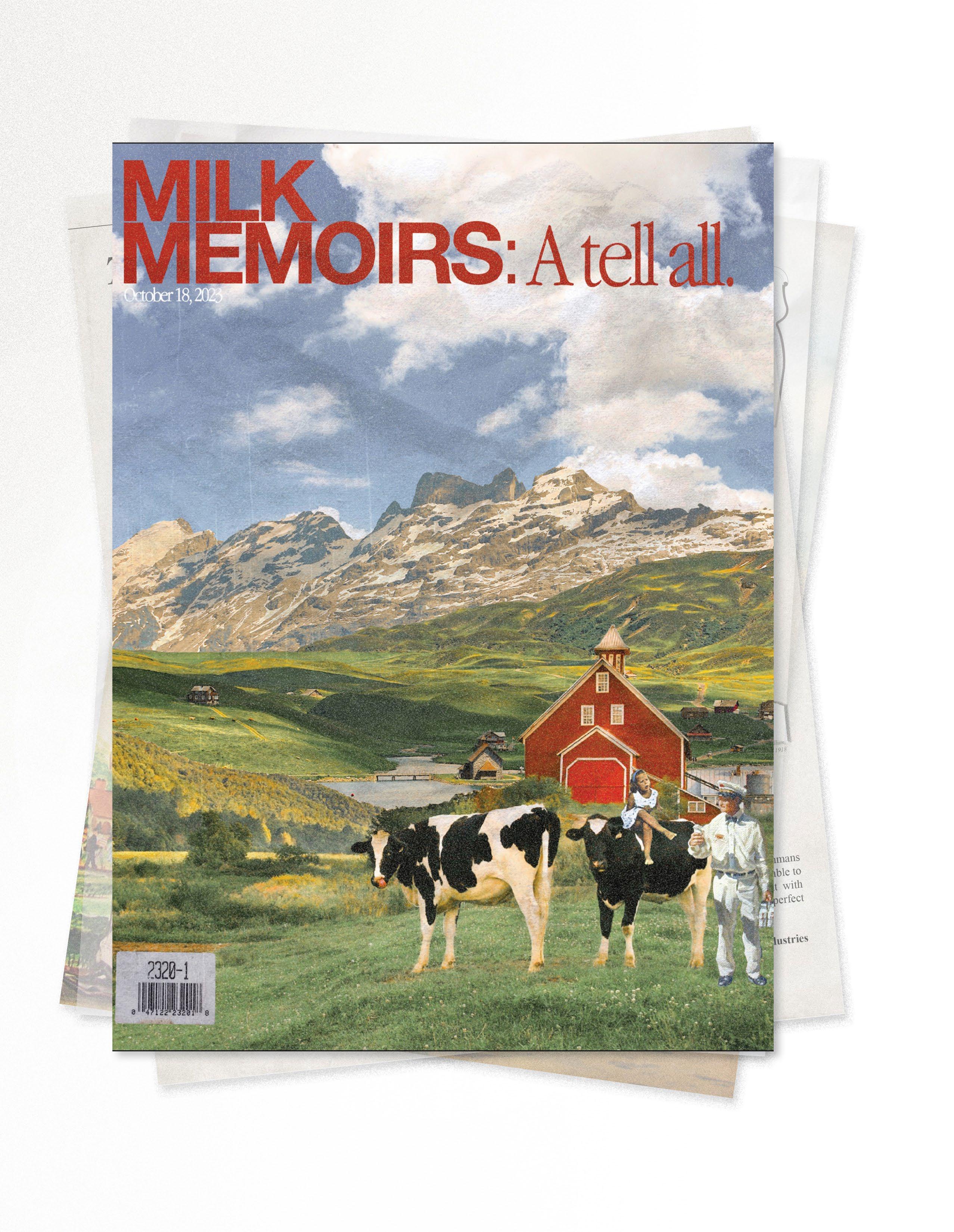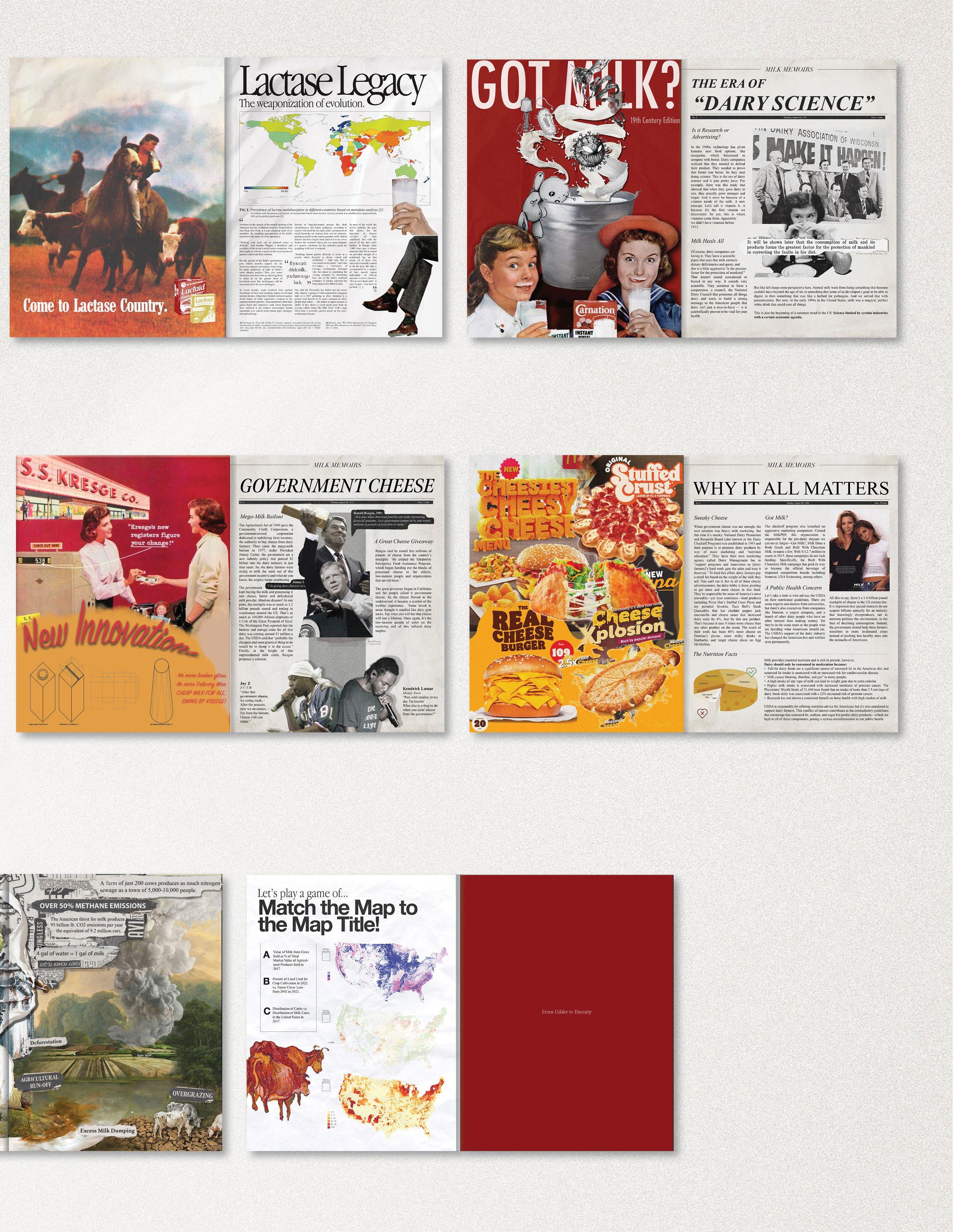


LA 3010 Fall 2023
Ithaca, New York





LA 3010 Fall 2023
Ithaca, New York

In this project, we host a dining experience in the context of the environmental consequences from the food we consume. The tablecloth symbolizes the pollution of a river, intensifying with the footprint of each ingredient. A first step in creating environmental change is to reflect on what we eat, and understand the food journeys of our ingredients.
Partners: Martin Brice & Jiayi Qin
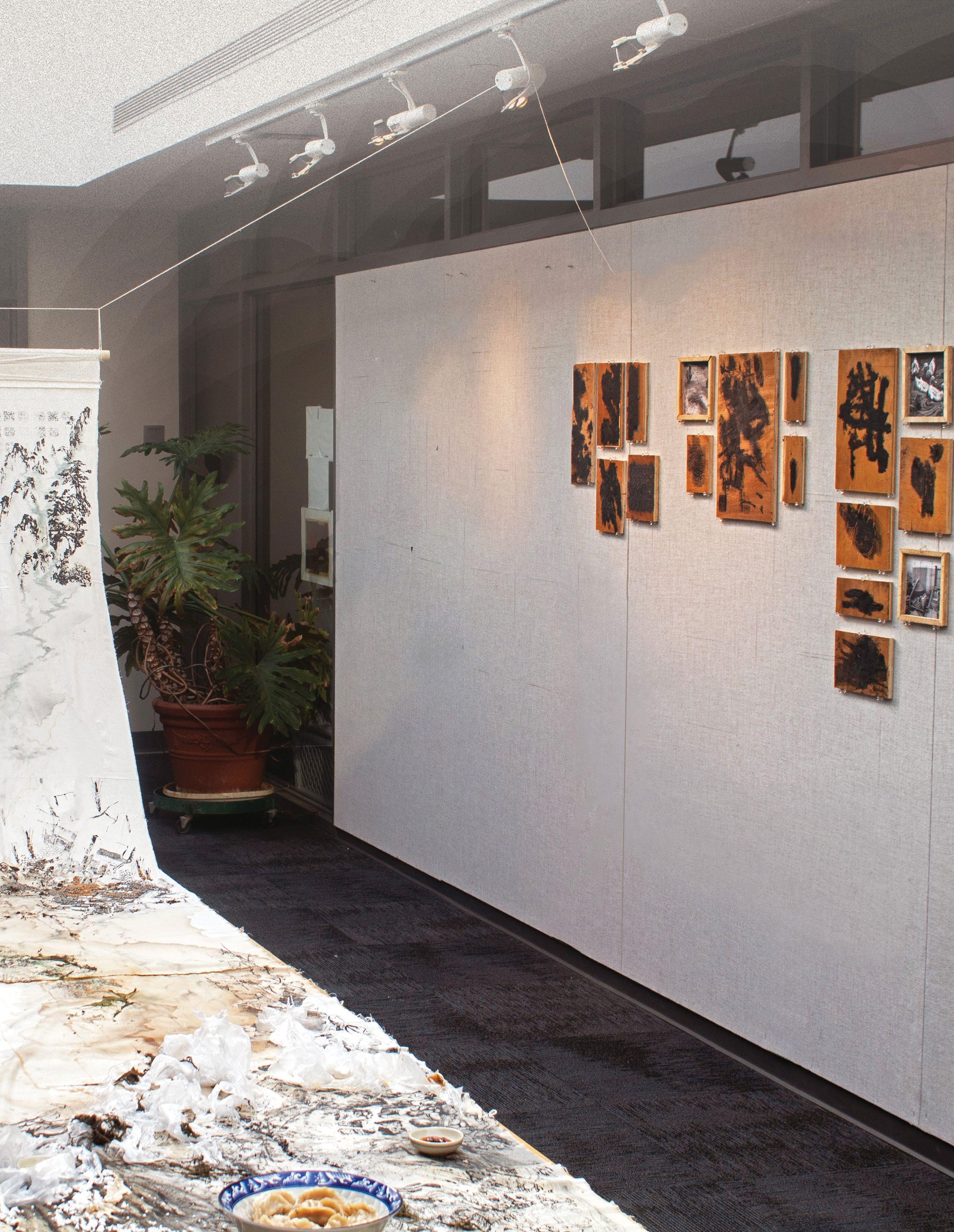

Hidden behind the cloth lies the culture of making dumplings and traditionally, they are a symbol of prosperity and celebration. Our cloth echoes the ancient Chinese art of shuǐ-mò, a technique of brush painting with black ink.
Wrapping dumplings brings friends and family together through the process of creating food. This joyous feeling is replicated at the start of our presentation, as reviewers and classmates come together to enjoy a delicious bowl of dumplings.
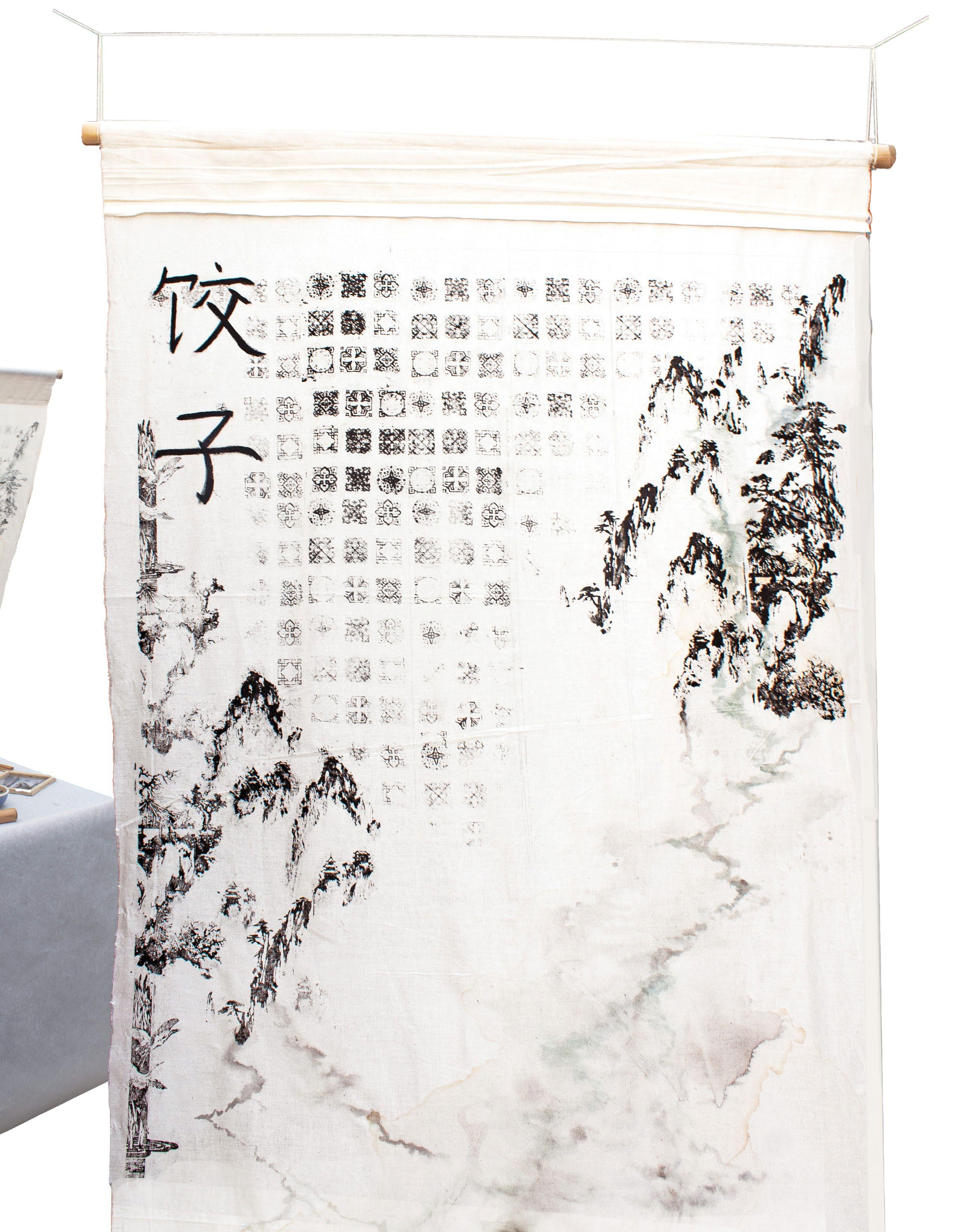
A set of dumplings can be broken down into 3 components: wrapper, filling, and packaging. Beyond the process of making our food, we must also acknowledge the unique journey our ingredients travel. Using 3 case studies corresponding to each component, we investigate the environmental stories of our food.

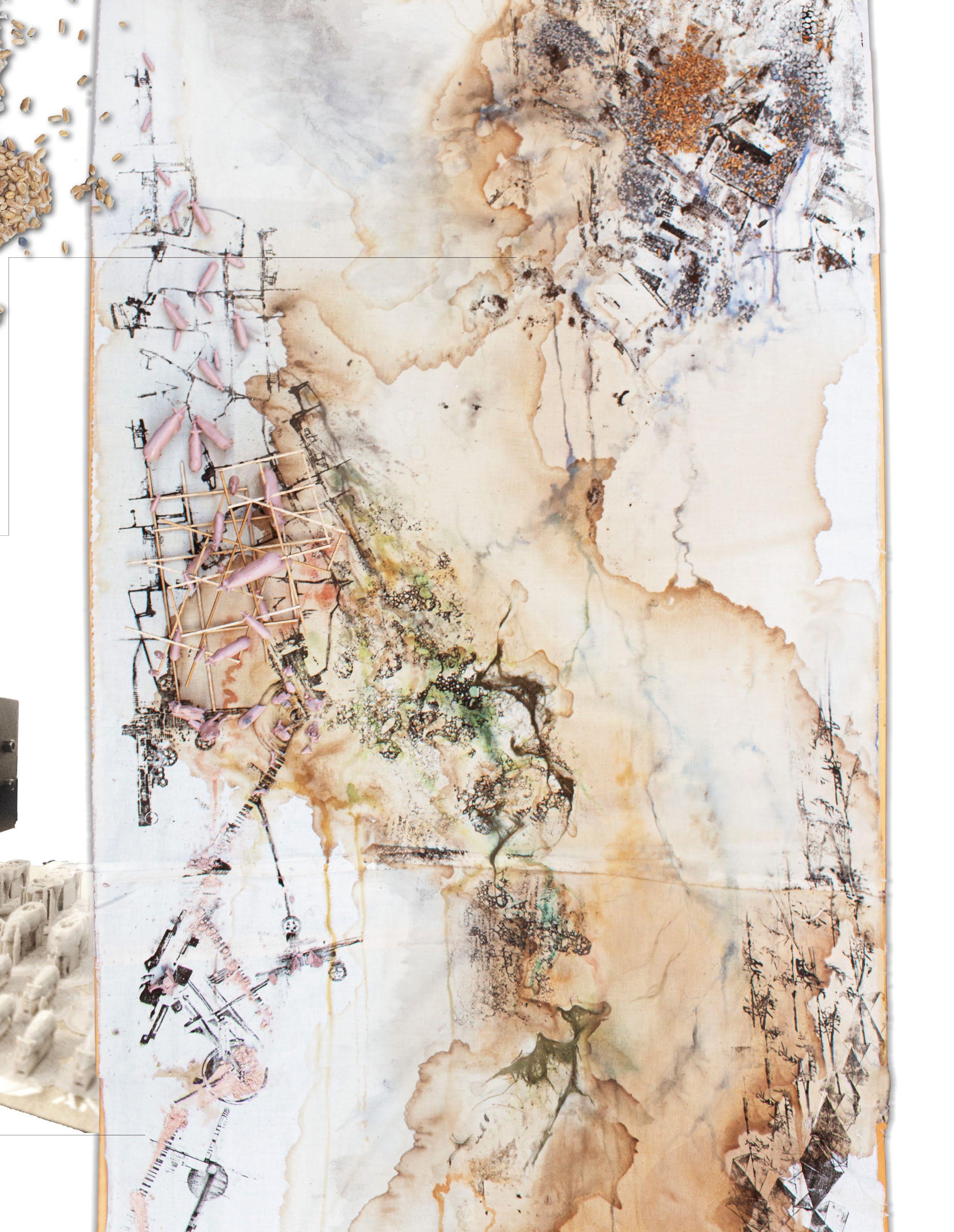

Plastic Pollution, Sinopec
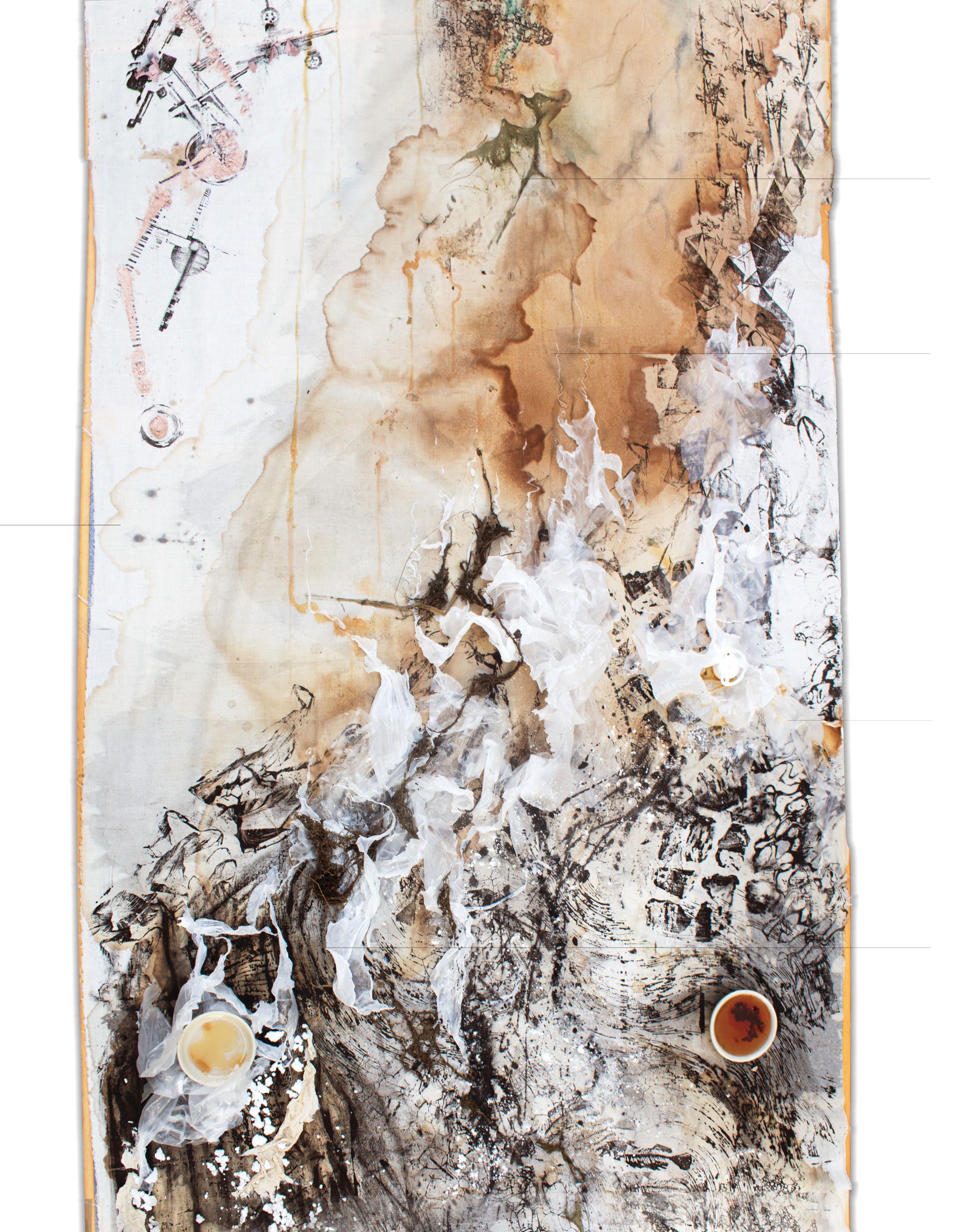
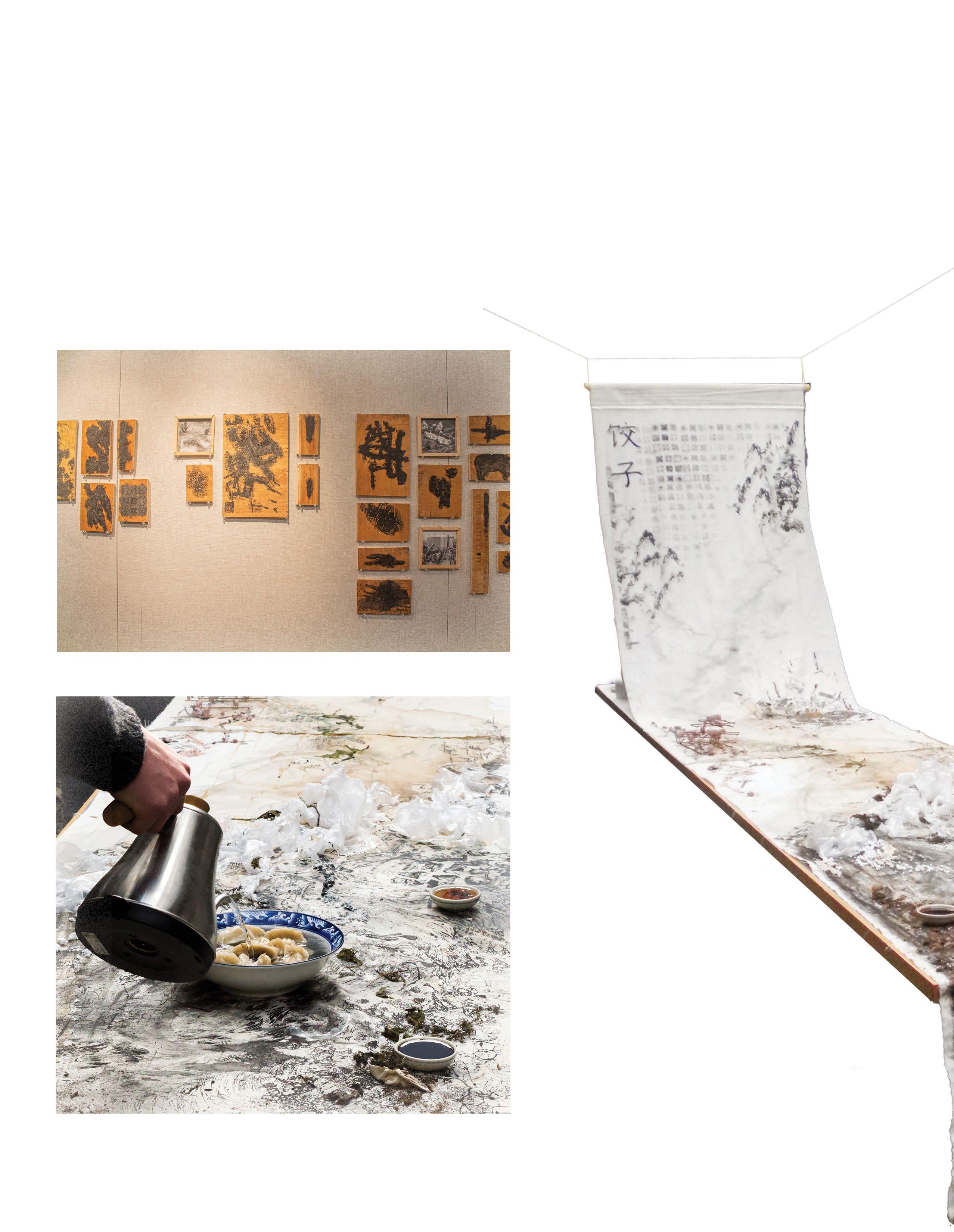
Soil contamination, agricultural runoff, eutrophication, algae blooms, industrial waste all intensifies the pollution of China’s rivers. The cloth culminates in a metaphorical ocean of our environmental footprints.
Dumplings are served again, but in a new context. As water is poured, the broth blackens, symbolizing the edible consequences of our food systems. Guests are encouraged to take a look up at the cloth, a canvas of implications, as they consume their dumpling.


LA 7005
Summer 2023
Brooklyn, New York
Red Hook is a neighborhood in Brooklyn that historically was an industrial powerhouse, specifically in shipping and grain industries. However with Red Hook’s rapid incline also came a socio-economic decline. With outdated infrastructure, Red Hook could not compete and became an increasingly unsafe, and low-income area. The construction of the BQE solidified its downfall and cut off the neighborhood from the rest of Brooklyn. Currently, the area still has low income and education levels, with pockets of gentrification moving in recently.
This masterplan aims to use the old grain terminal site as a means of reconnecting Rved Hook with the rest of Brooklyn, specifically increasing resources for education and food access.
Partners: Coco Dawkins & Amanda Cetta
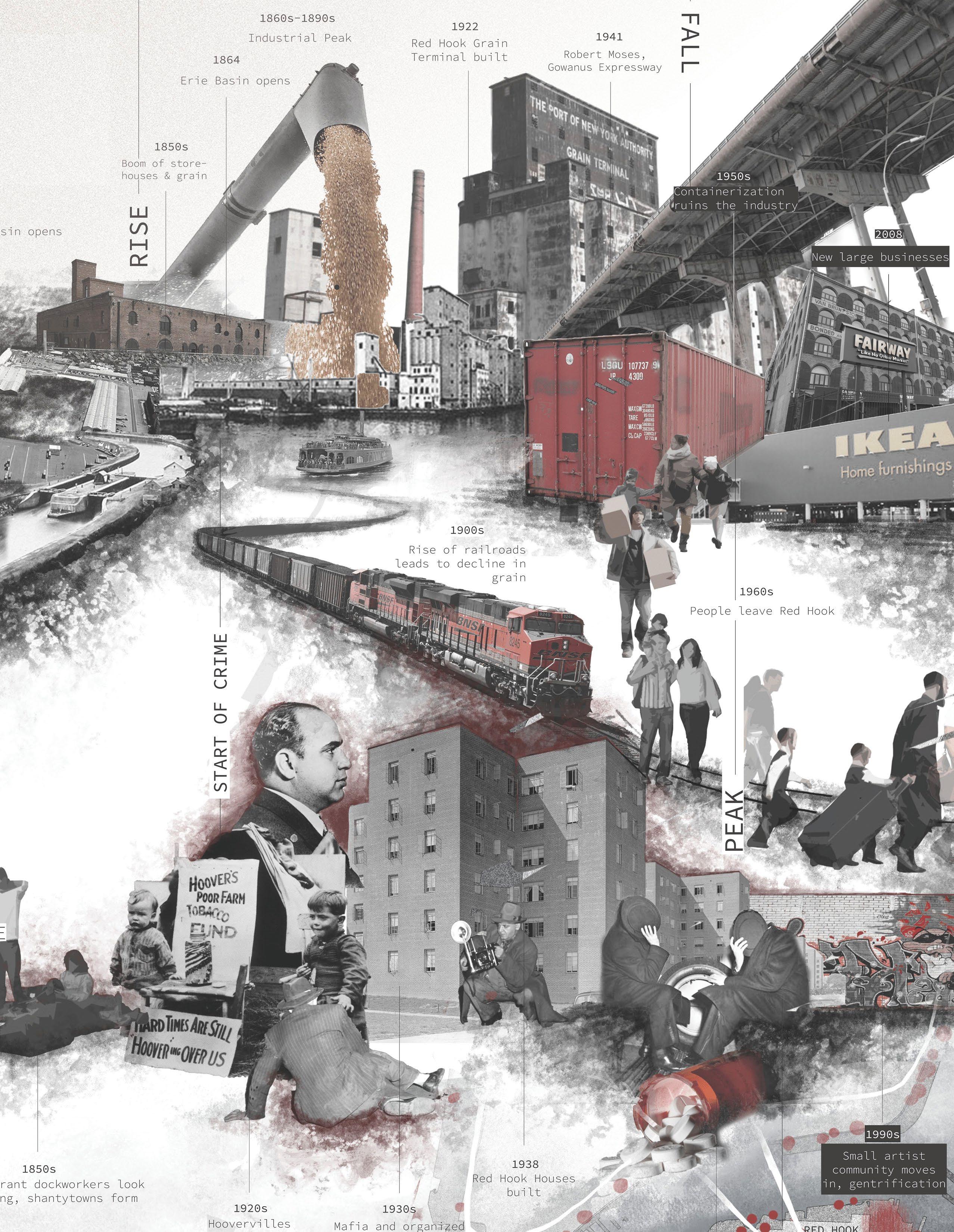
Our proposal is a 13-acre urban community farm & research center that hosts a diversity of different agricultural methods and programs. The new site aims to use agriculture as a way of education for the various schools in the area, providing sustainable food and valuable hands-on experiences. Currently the site is a brownfield, thus, we propose the implementation of phytoremediation as the initial research focus of the grain terminal research center.
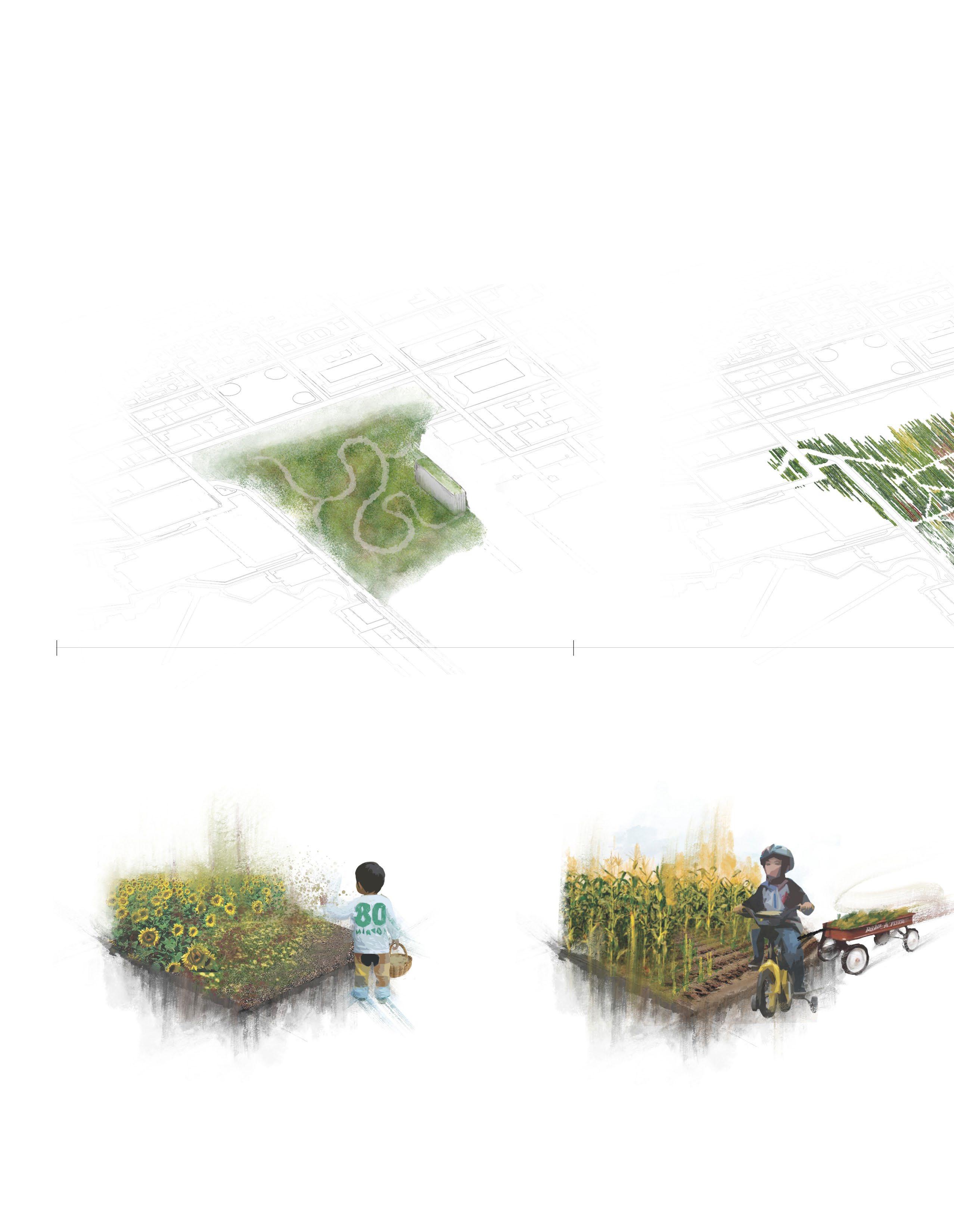
0 yrs
Development of site alongside growth of residents
10 yrs

High School
20 yrs
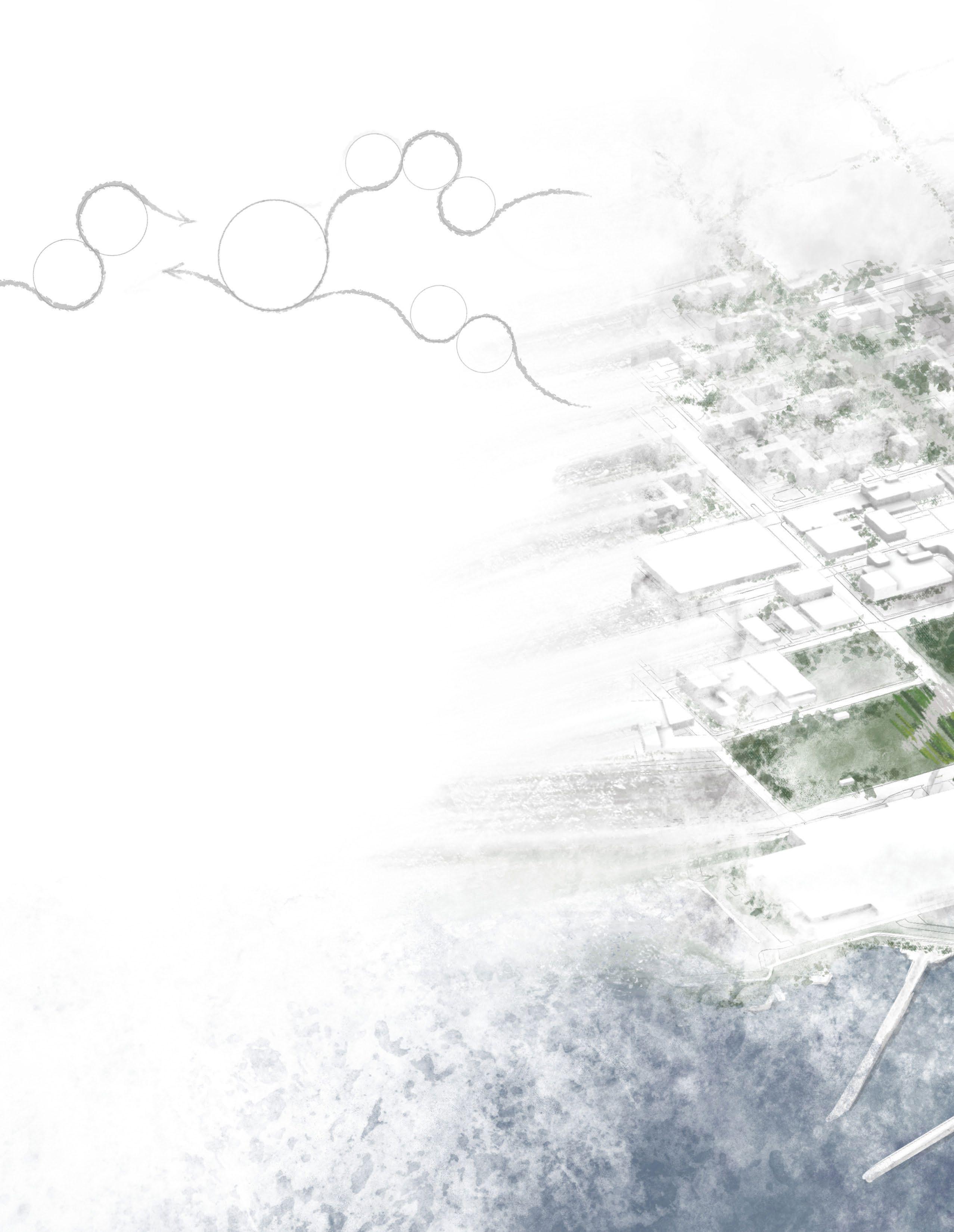
• Aeroponics
• Hydroponics
• Greenhouses
• Farm-to-Table Restaurant
• Arts Plaza
• Outdoor Education Center
• Agricultural Research Center
• Shipbuilding Boardwalk
• Orchards
• Experimental Farming
• Accessible Farming
• Recycled Container Gardens
• Open Lawn
• Rooftop Garden
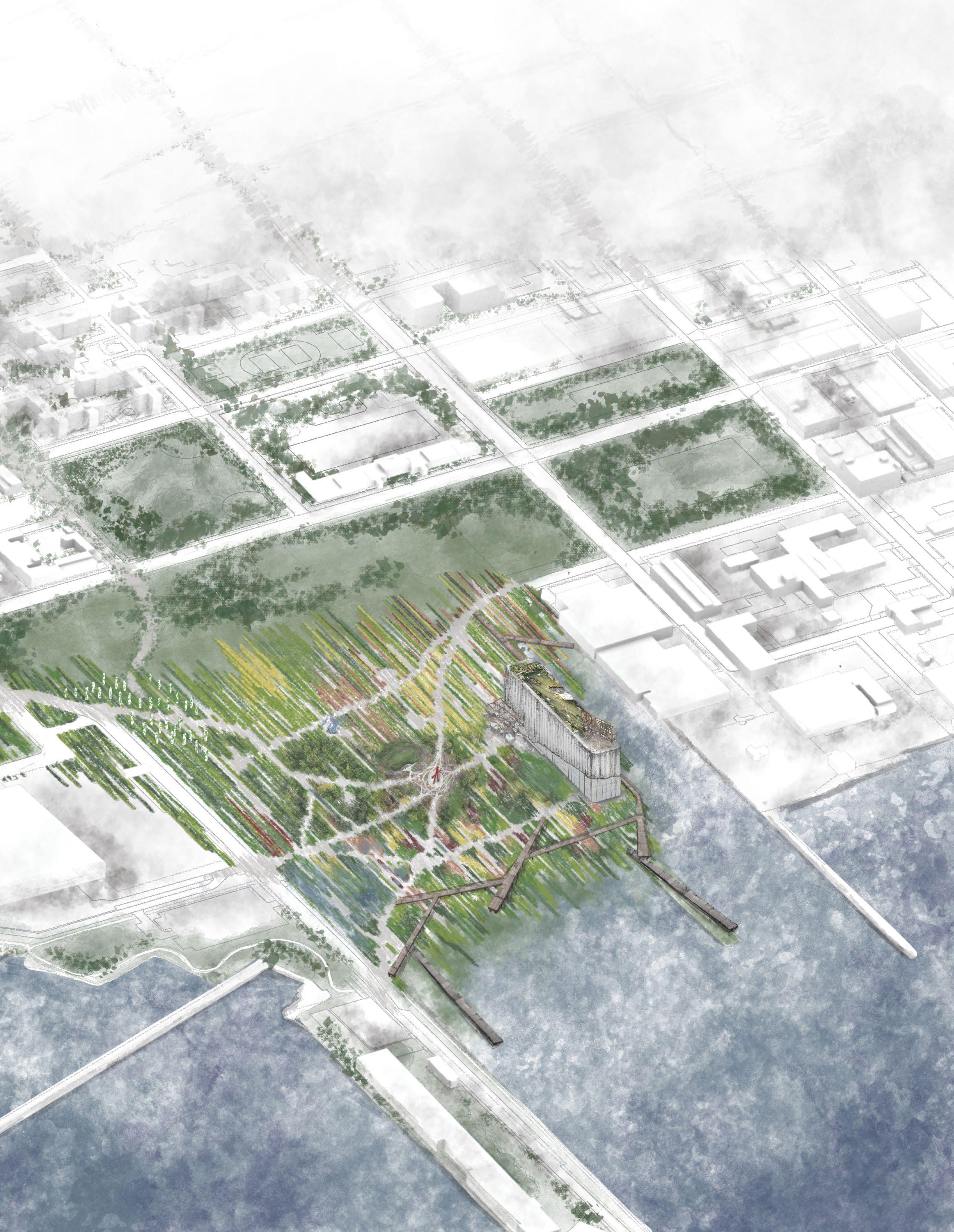
Transforming an abandoned grain terminal

SECTION
Farming
INTERIOR
Looking up at vertical farming towers in old grain silos
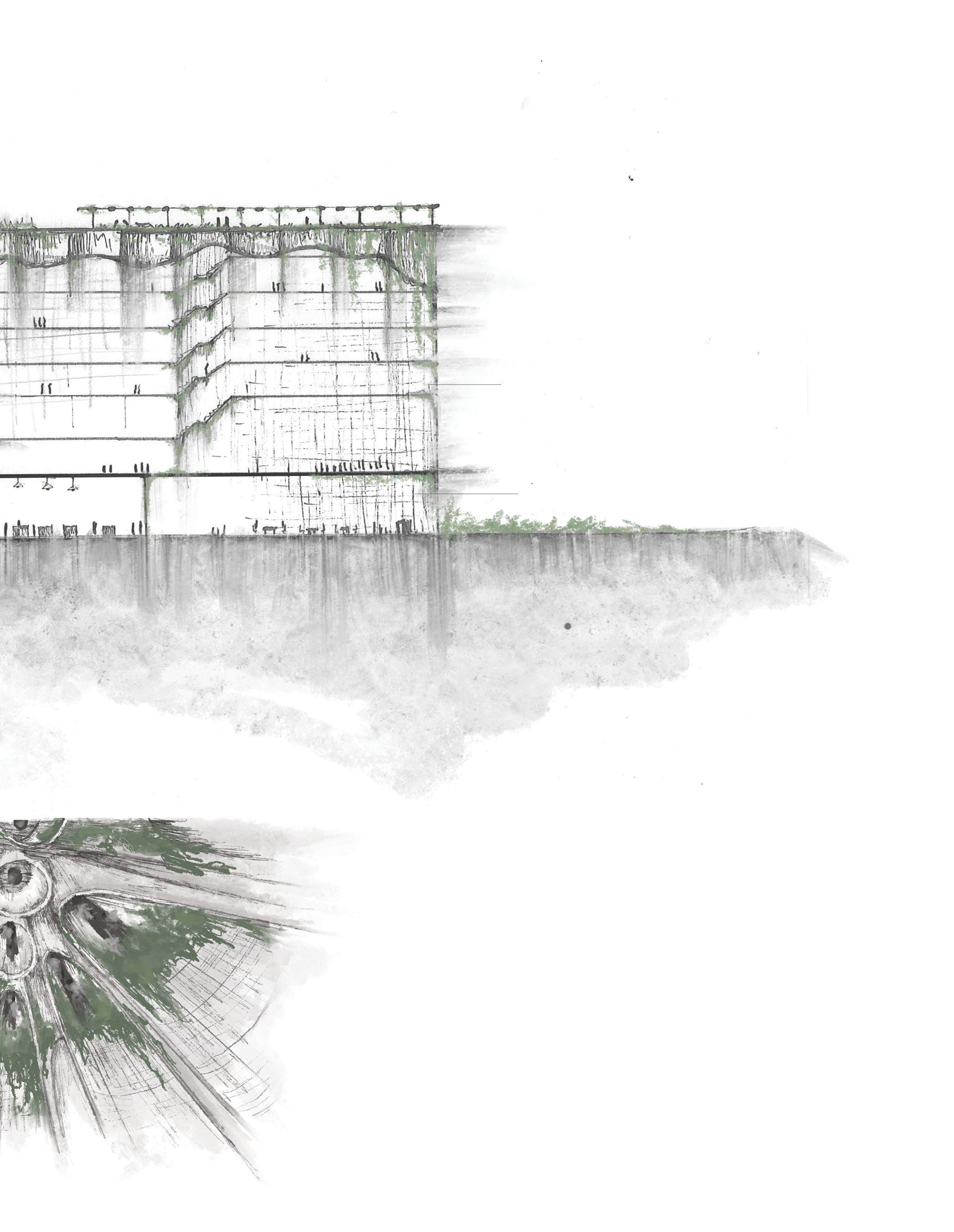
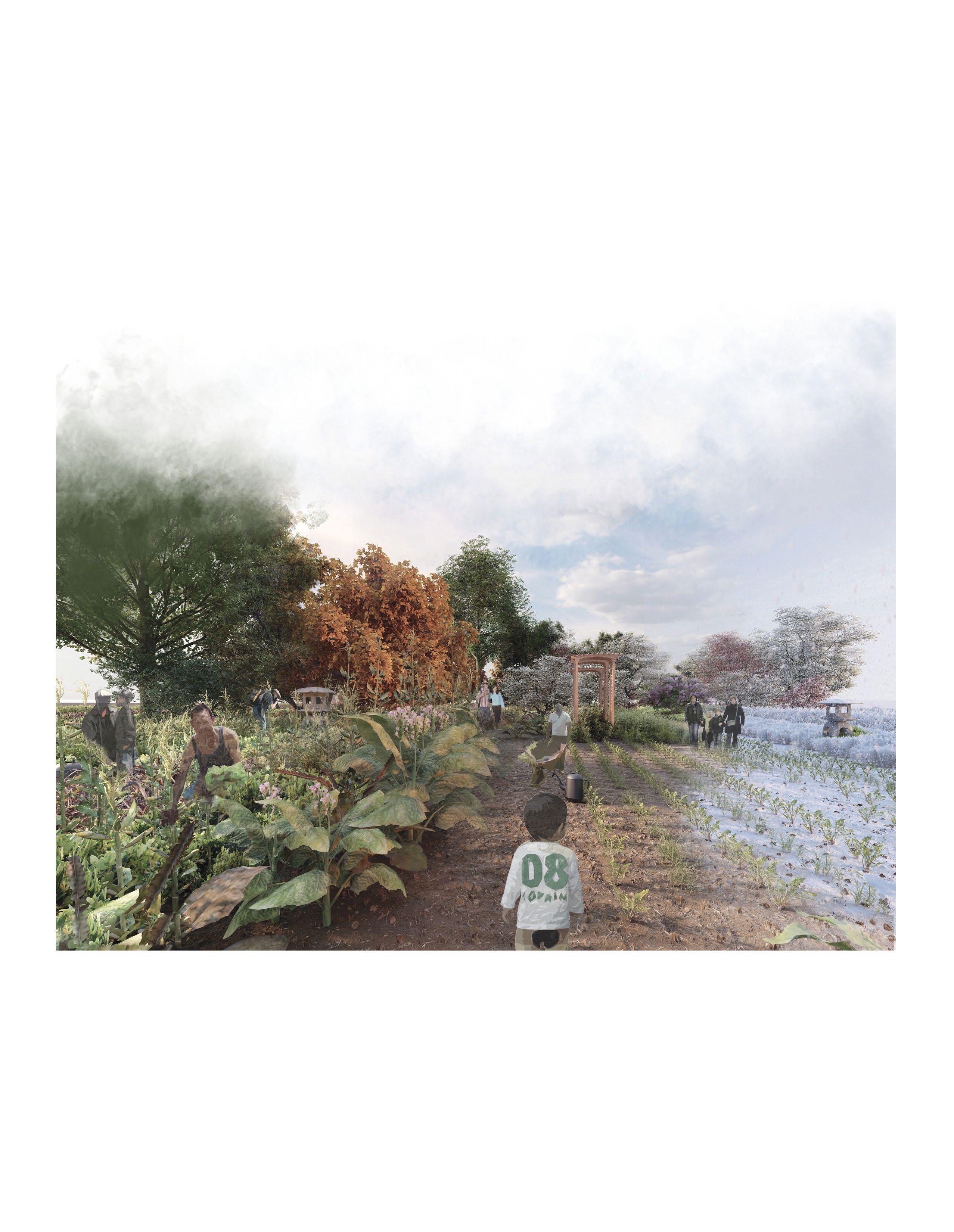
Farm through four seasons

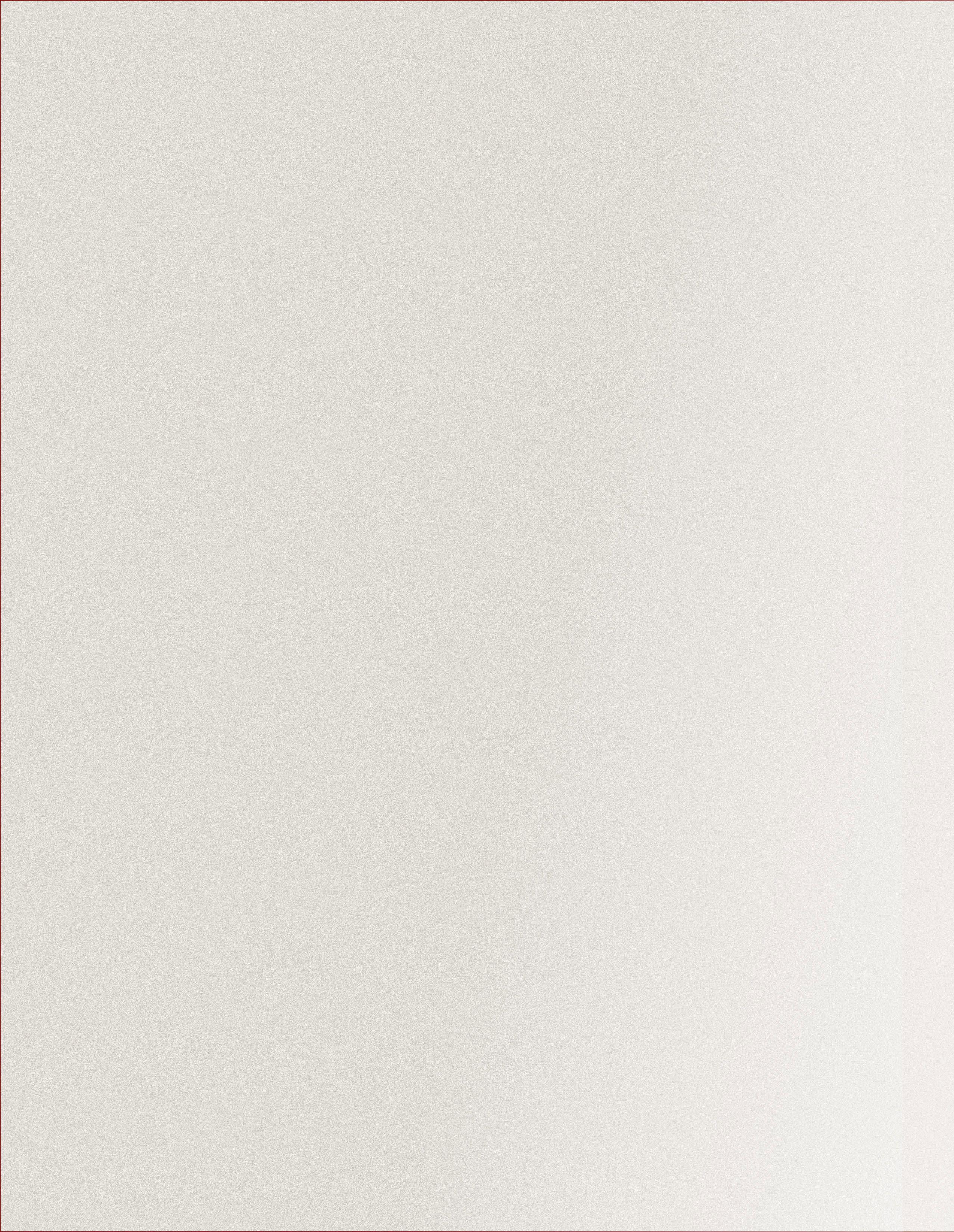
LA 3020 Spring 2024
Syracuse, New York
Conventional solar placement in agrivoltaics consist of rigid, linear rows of panels, driven by engineering and cost-efficiency. The lifespan of solar causes damage to soil, is often perceived as visually displeasing, and takes land away from agricultural and prior functions. This project aims to rethink solar design beyond the technical; more as a visual experience, an extension of the topography, and in what innovative ways this technology can find character in the rural landscape.
Specifically, the research was for the site of Daniluk Farms near Syracuse working with AES, an energy company. The focus was on upstate New York and the growing agrivoltaic development in relation to an aging farming community.
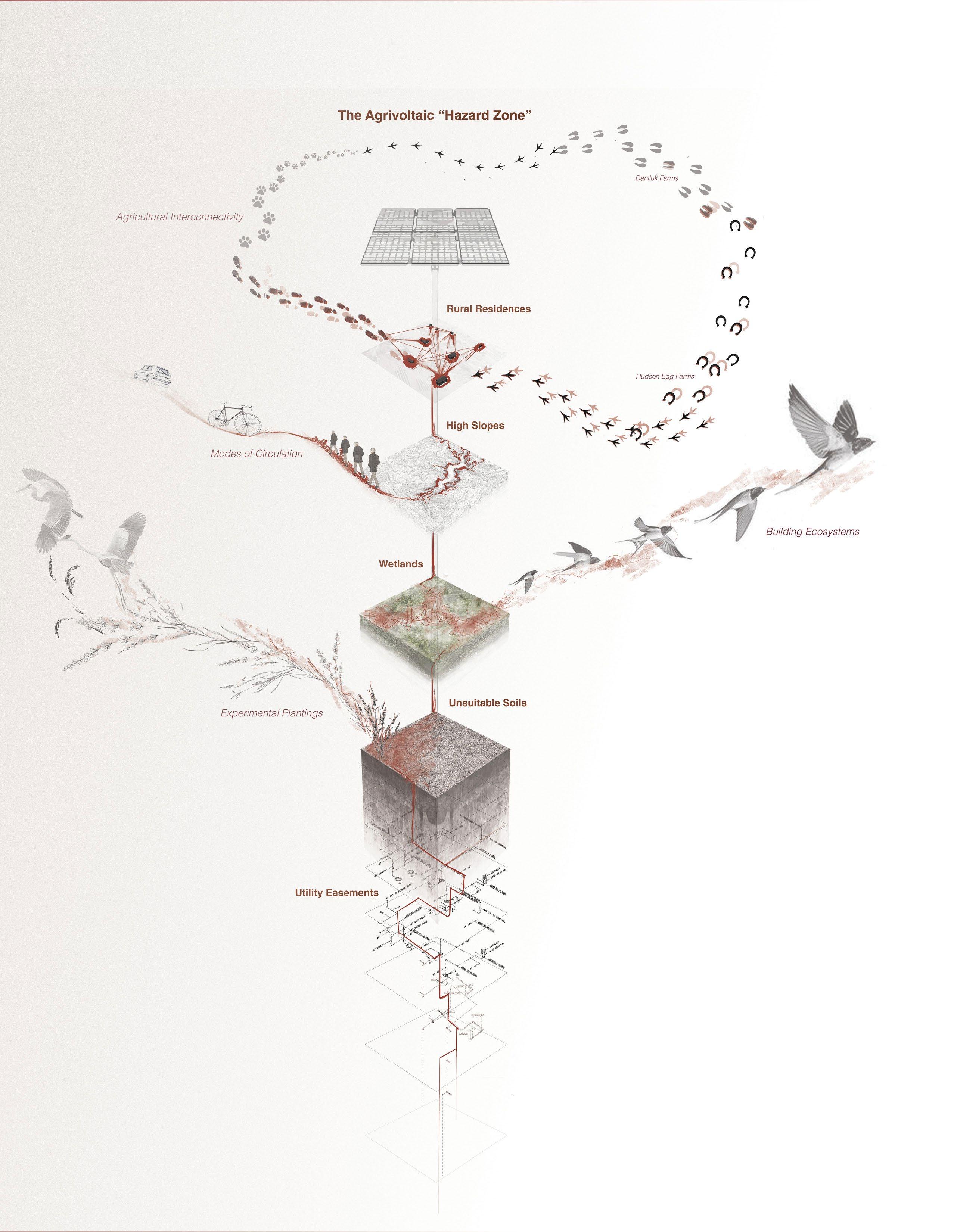
These experimentations aim to challenge industry standard solar placement and explore how a solar farm can become a visual exhibition using gradients of various tilts and topographical arrangements while taking advantage of the highest sun exposure ridgelines and patches.
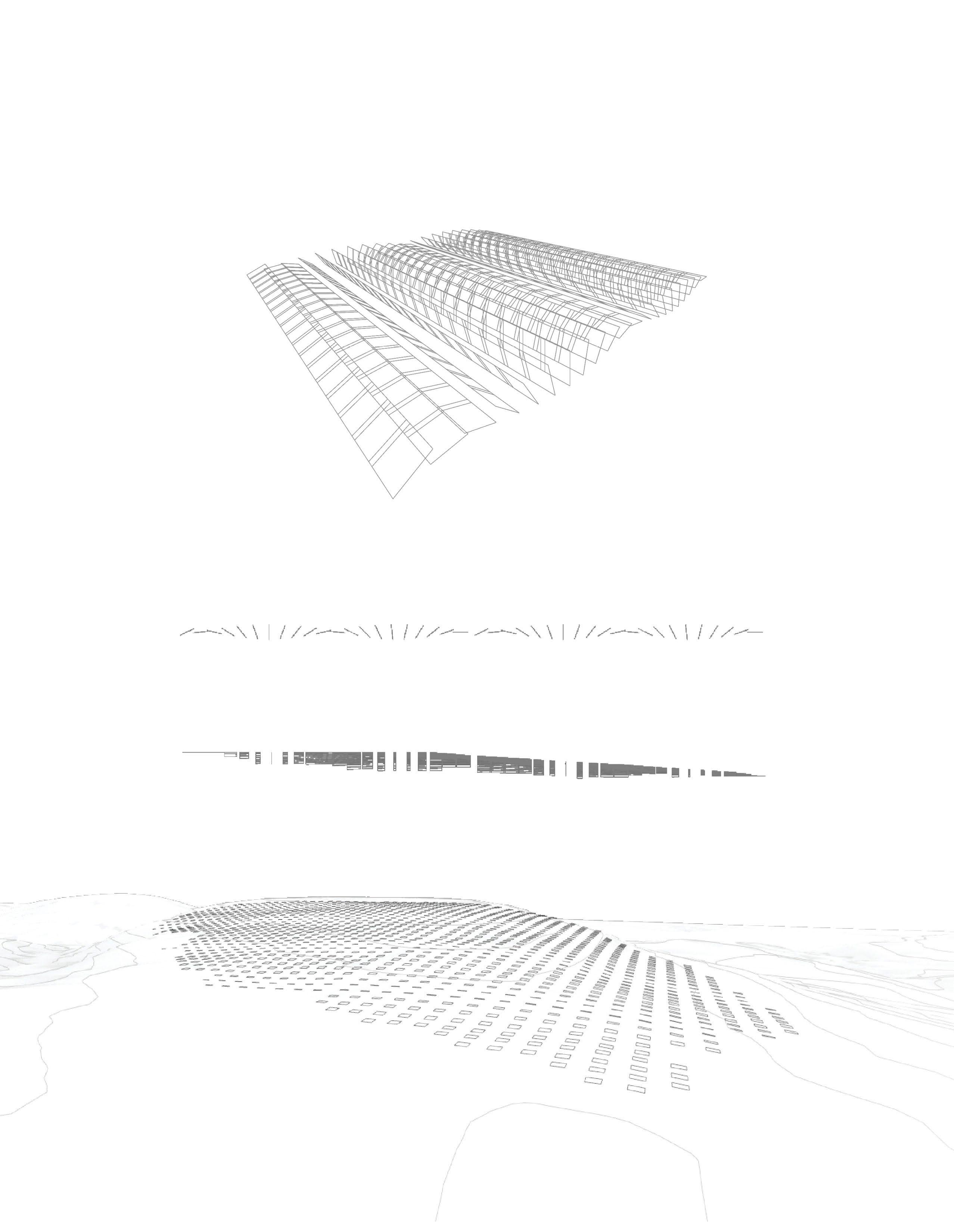
Gradient of tilt
In section
In the landscape
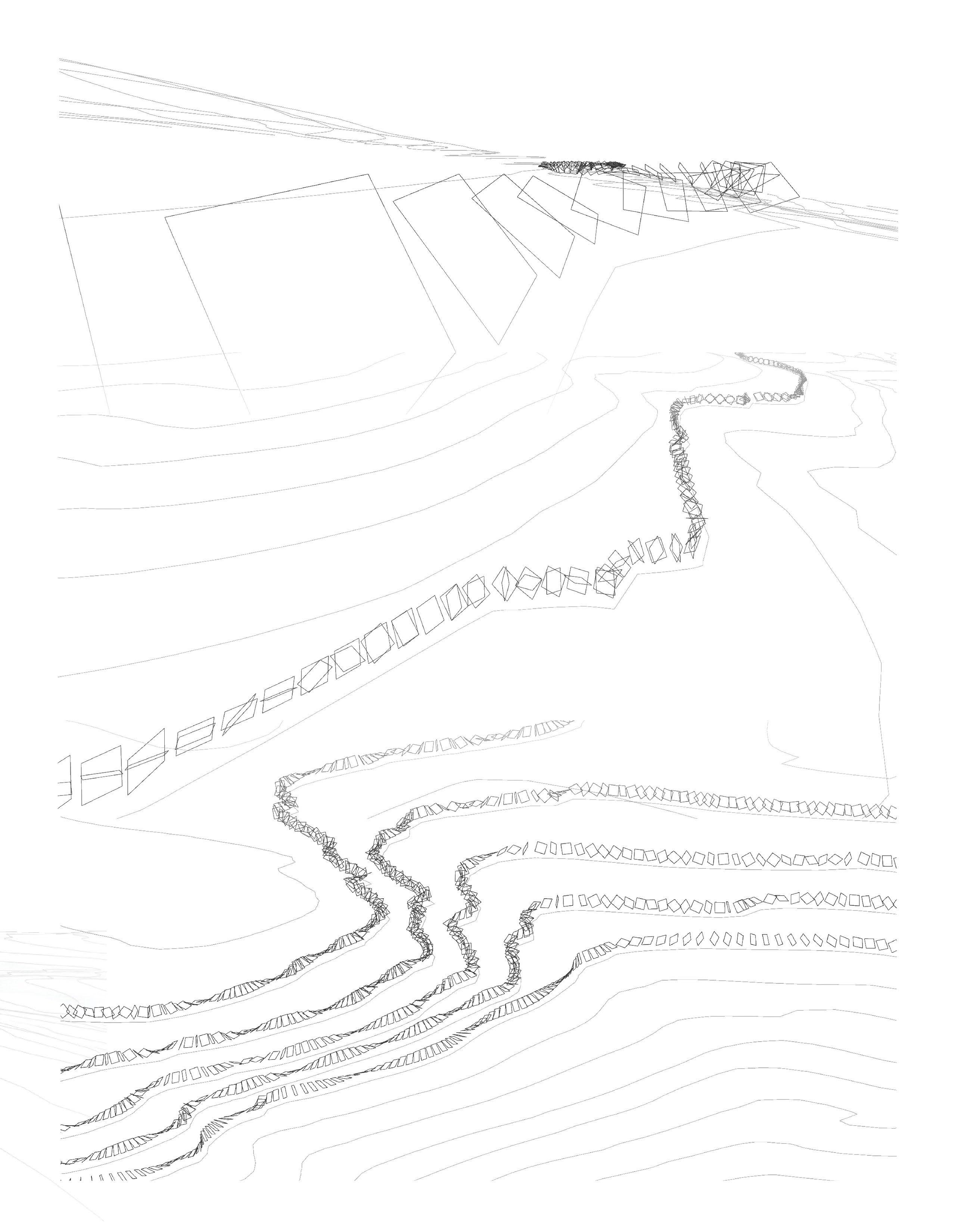
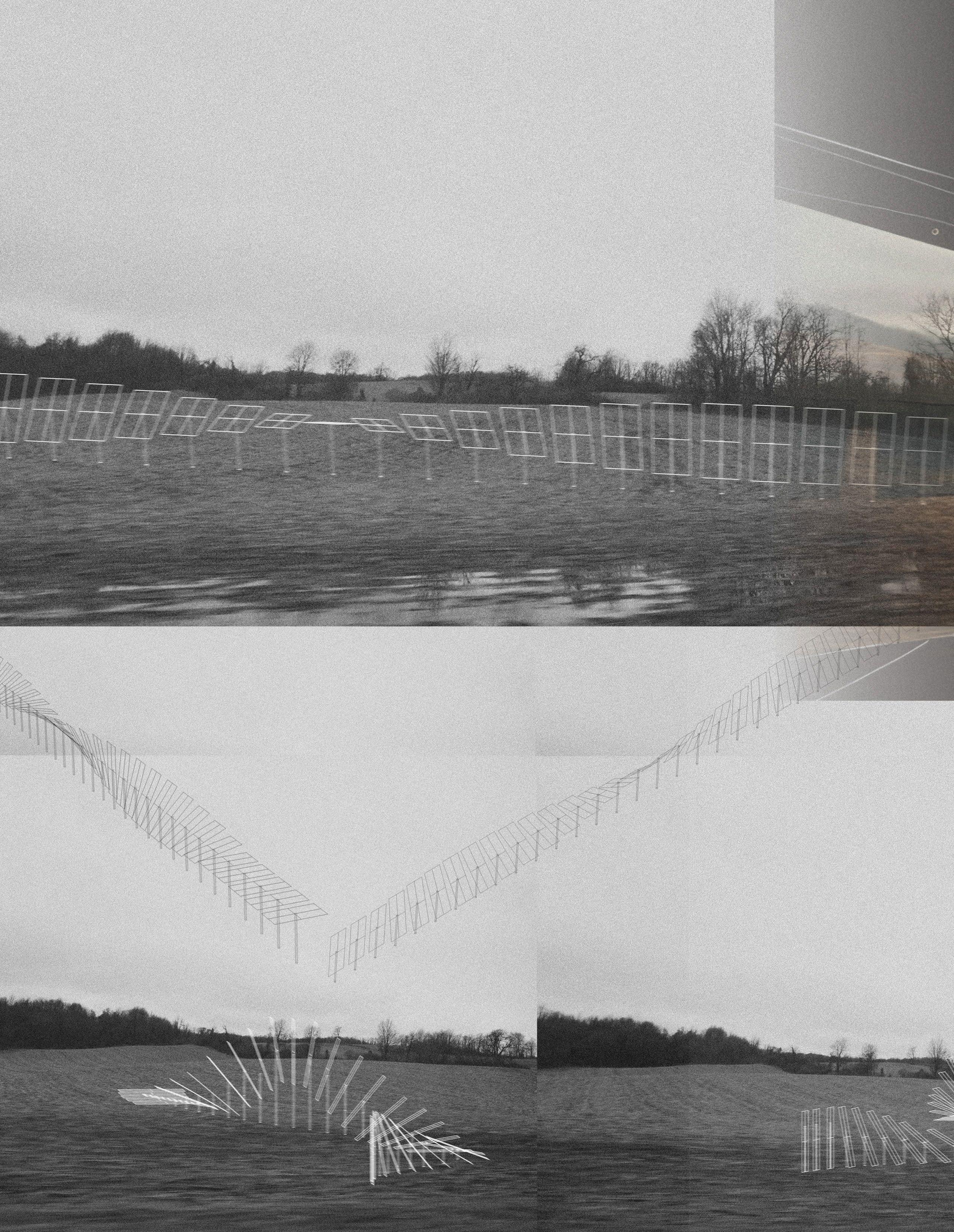
The potential for an undulating panel formation catered to the driving experience

LA 3020 Spring 2024
Coney Island, New York
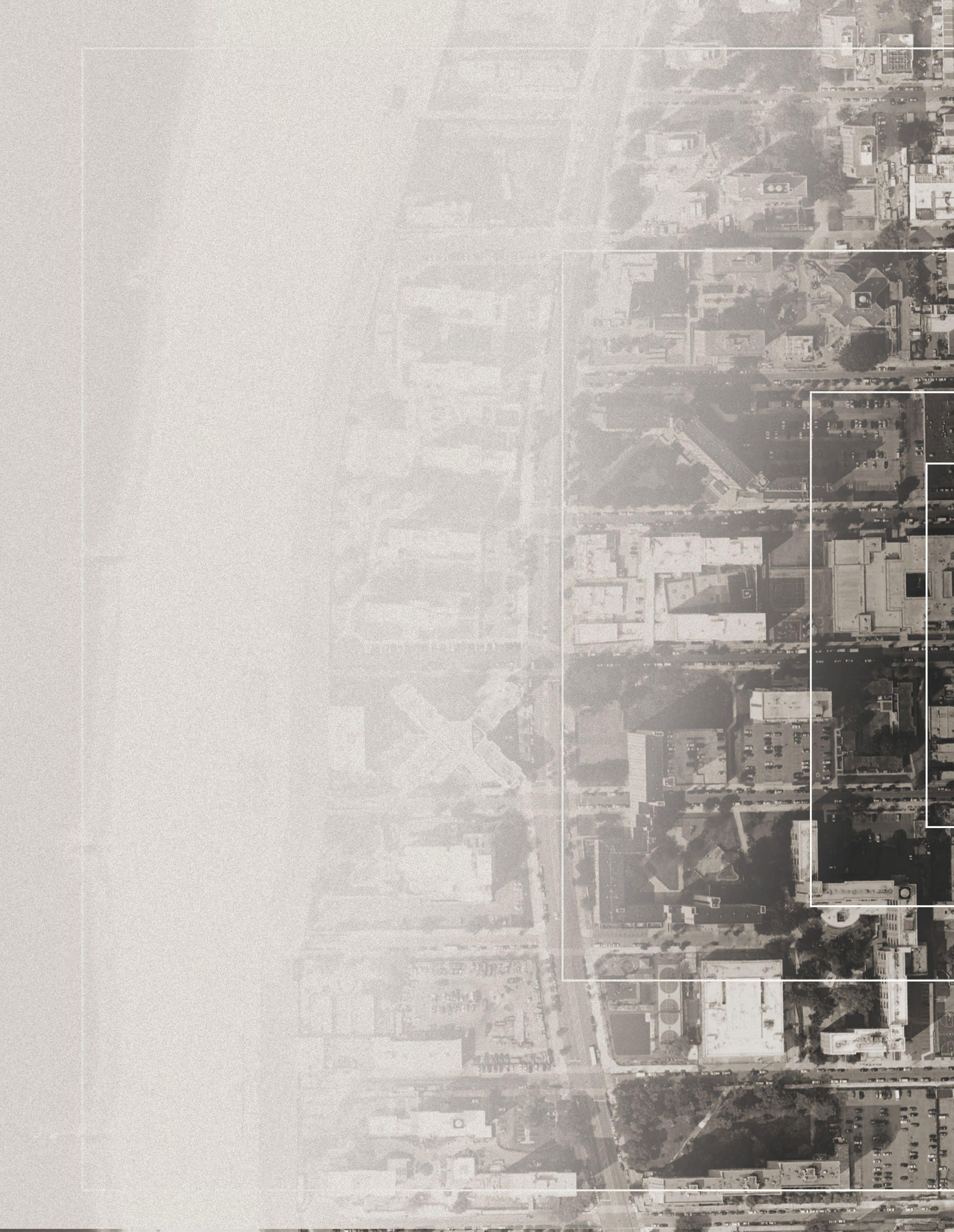
Coney Island is a highly flood-vulnerable region below South Brooklyn. This project challenges the presence of imperviousness in this urban environment and pushes sustainable transportation. Would residents be more inclined to make this socio-cultural shift away from the car if we designed for a more human-scale experience? And how can we reimagine the extra space created from this change to divert water?
The project focuses on a transect through a block of rowhouses. This street is beautiful in unique ways, with the slow, intimacy of this area with school, vegetation peeking through, the colorful tarp coverings on the houses. I believe there’s potential for an urban living room, to make our streets more artful, livable, and soften the delineation between private and public.
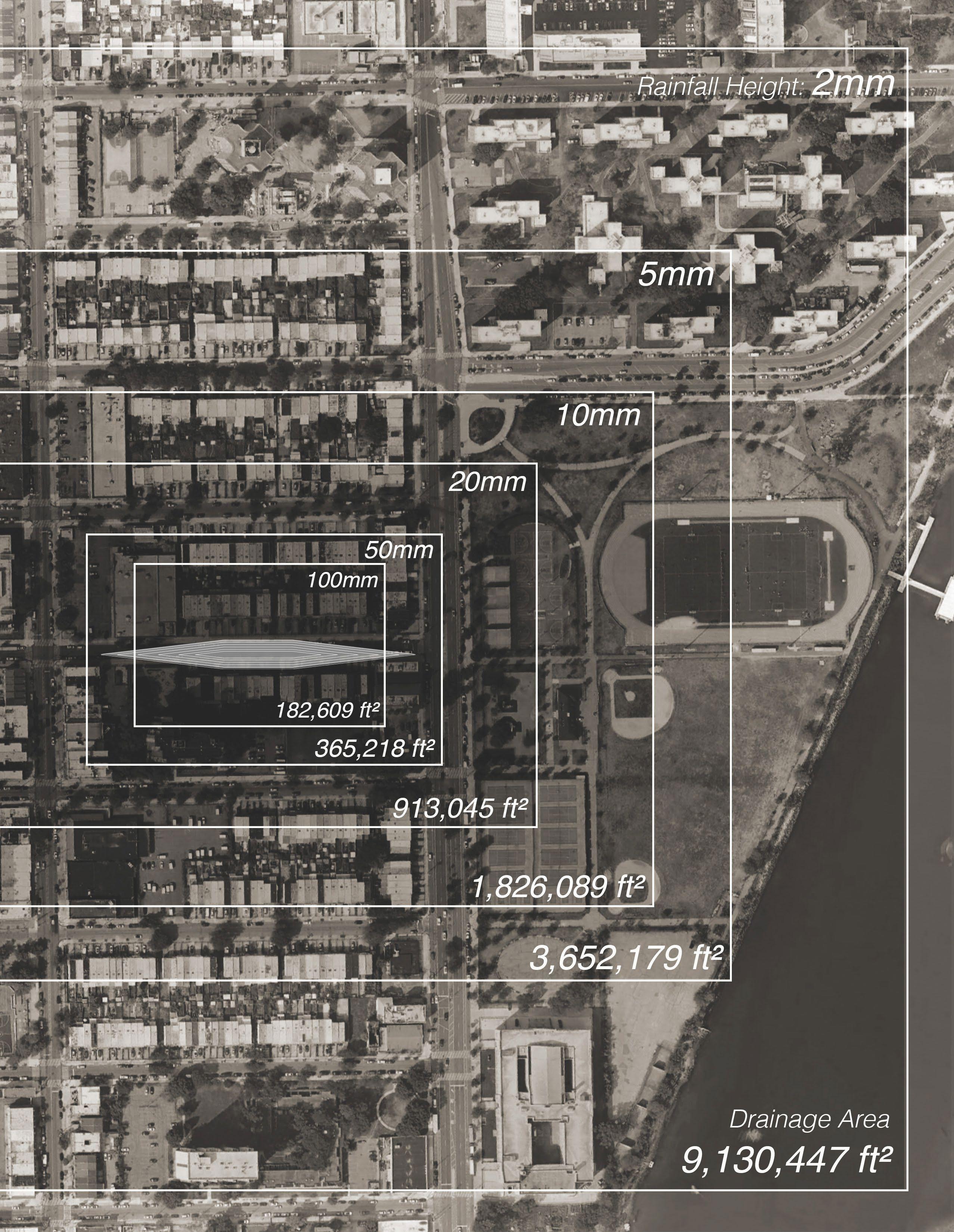
Moderate Stormwater Flooding with 2050 SLR
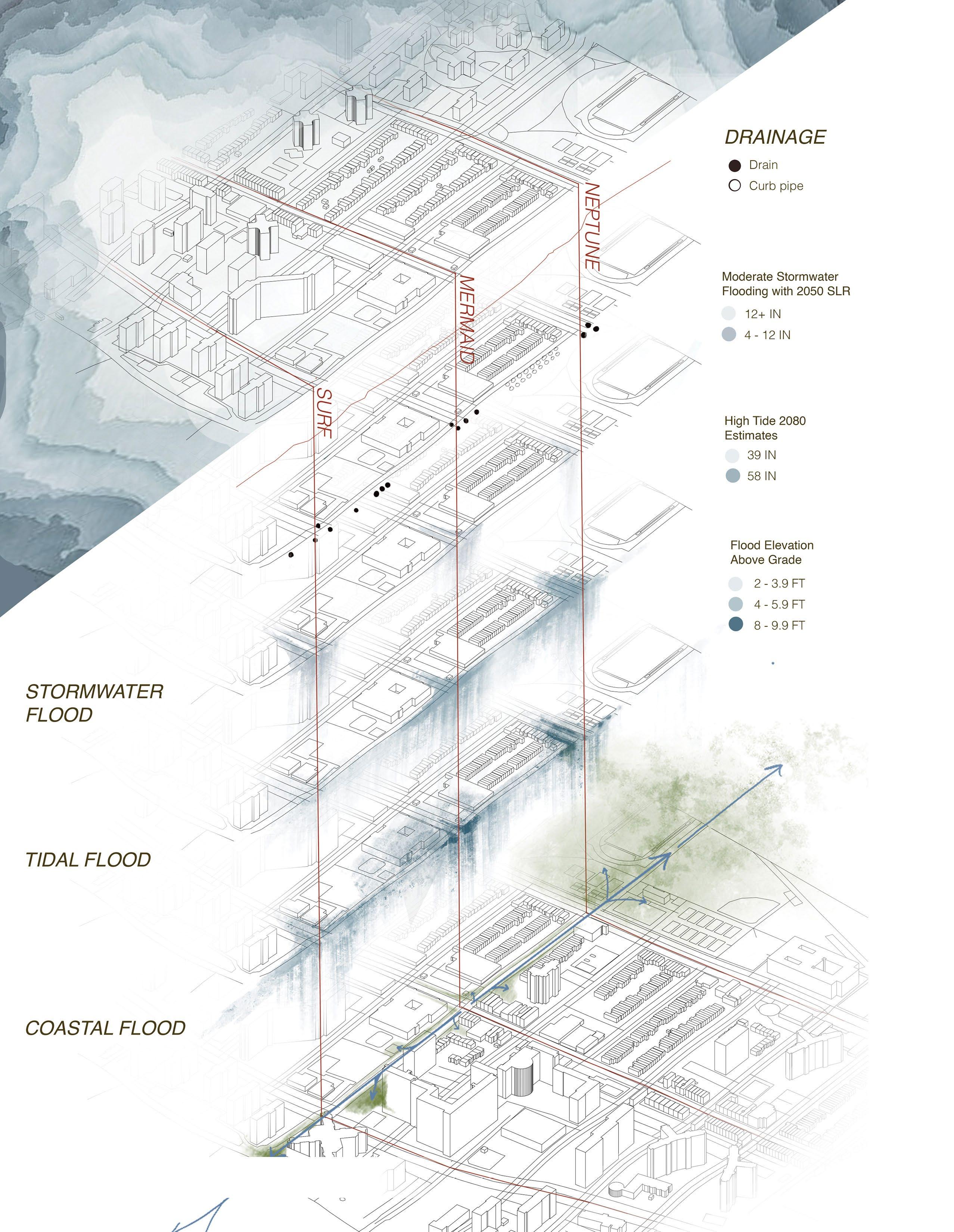
High Tide 2080 Estimates
Flood Elevation Above Grade
+ Water Flow

+ Watershed + Water Flow
+ Water Flow
Tracing the path of water: from watershed to outfall

What if we took away the fence? How much surface area can a 60,000 intertwining the New York culture of sitting on one’s stoop. This is a visualization
60,000 ft3 detention pond drain for? This design proposes the transformation of one street into a high capacity swale, visualization of how these private yards could be extropolated into a collective front step, in the context of flood resiliency.
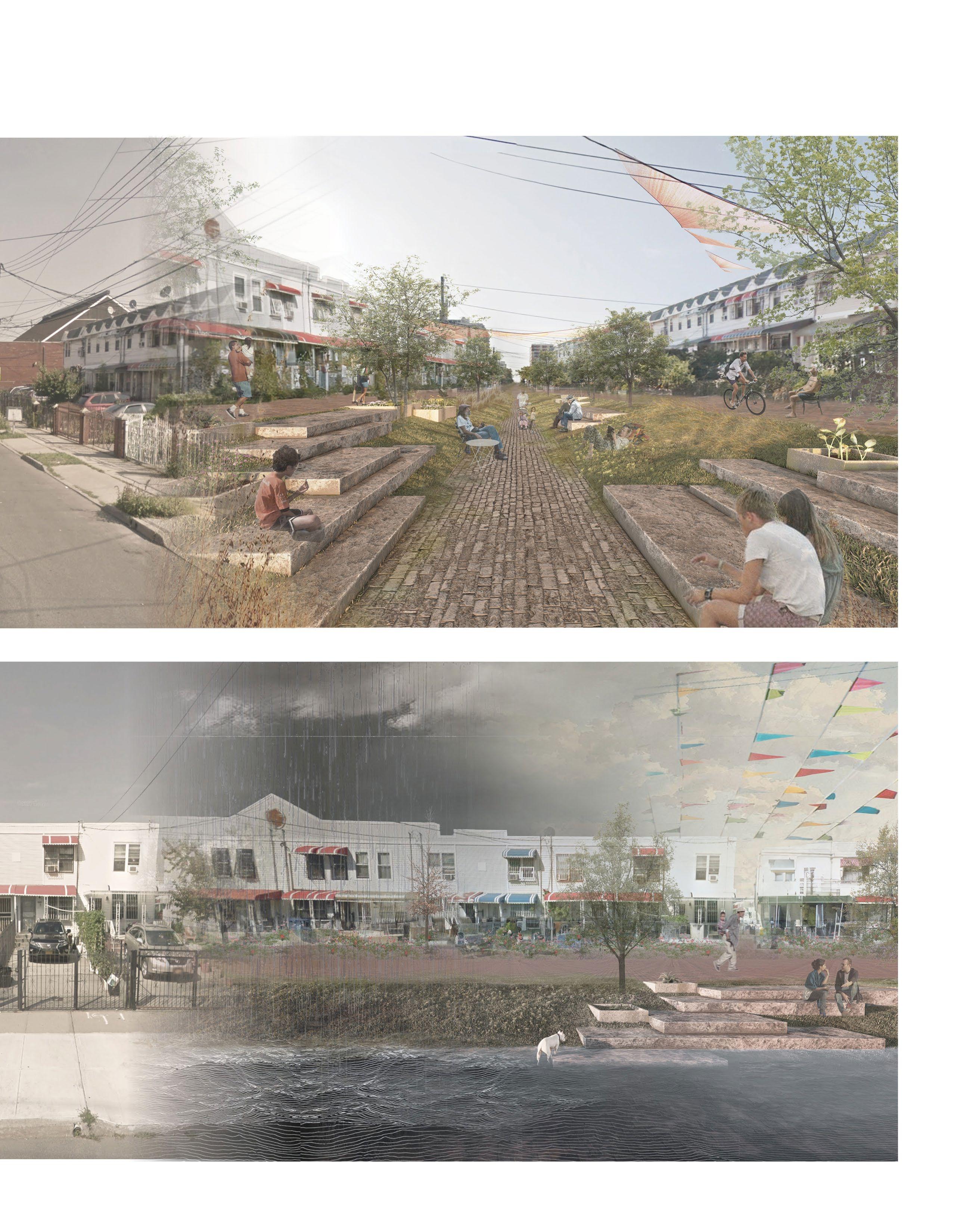
DIS Copenhagen Spring 2023
Copenhagen, Denmark
Between the intersection of Rovsingsgade and Tagansvej lies an 18-acre site that contains a mix of infrastructure including: car dealerships, a mosque, senior living, residential housing, modular student housing, parking lots, and a business park. It’s in a young, artistic area bordered by three large parks, one of them being the famous Superkilen.
The focus of this redesign is based off community engagement, conducting over 40 different street interviews as a studio. Considering how the neighborhood is unique in its a diverse population, this redesign surrounds a large bioswale park as a shared space for all. With embedded retention ponds, this park environmentally contributes to Copenhagen’s cloudburst management while providing a uniting gathering point that caters to each community group.v
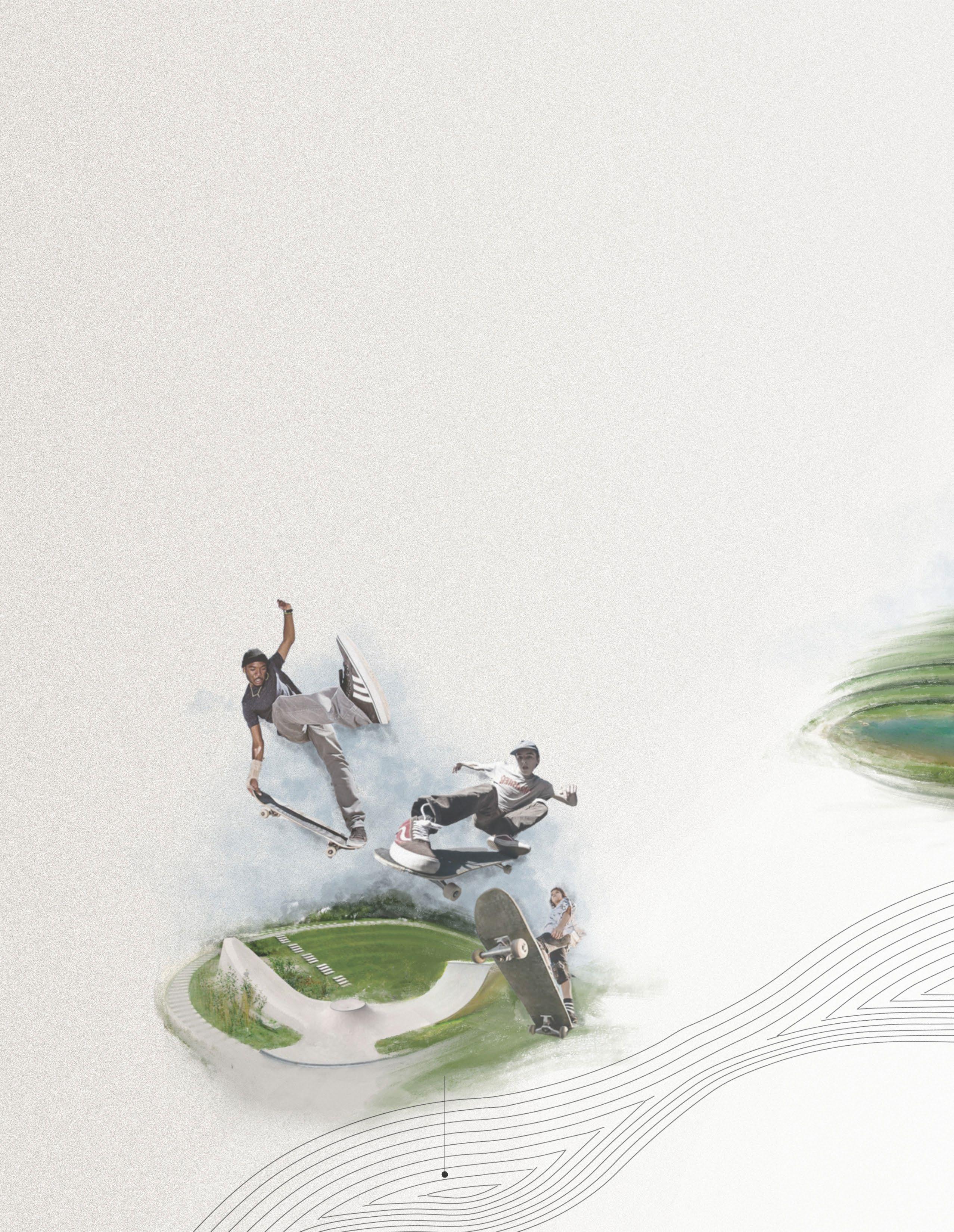
Skatepark

Garden
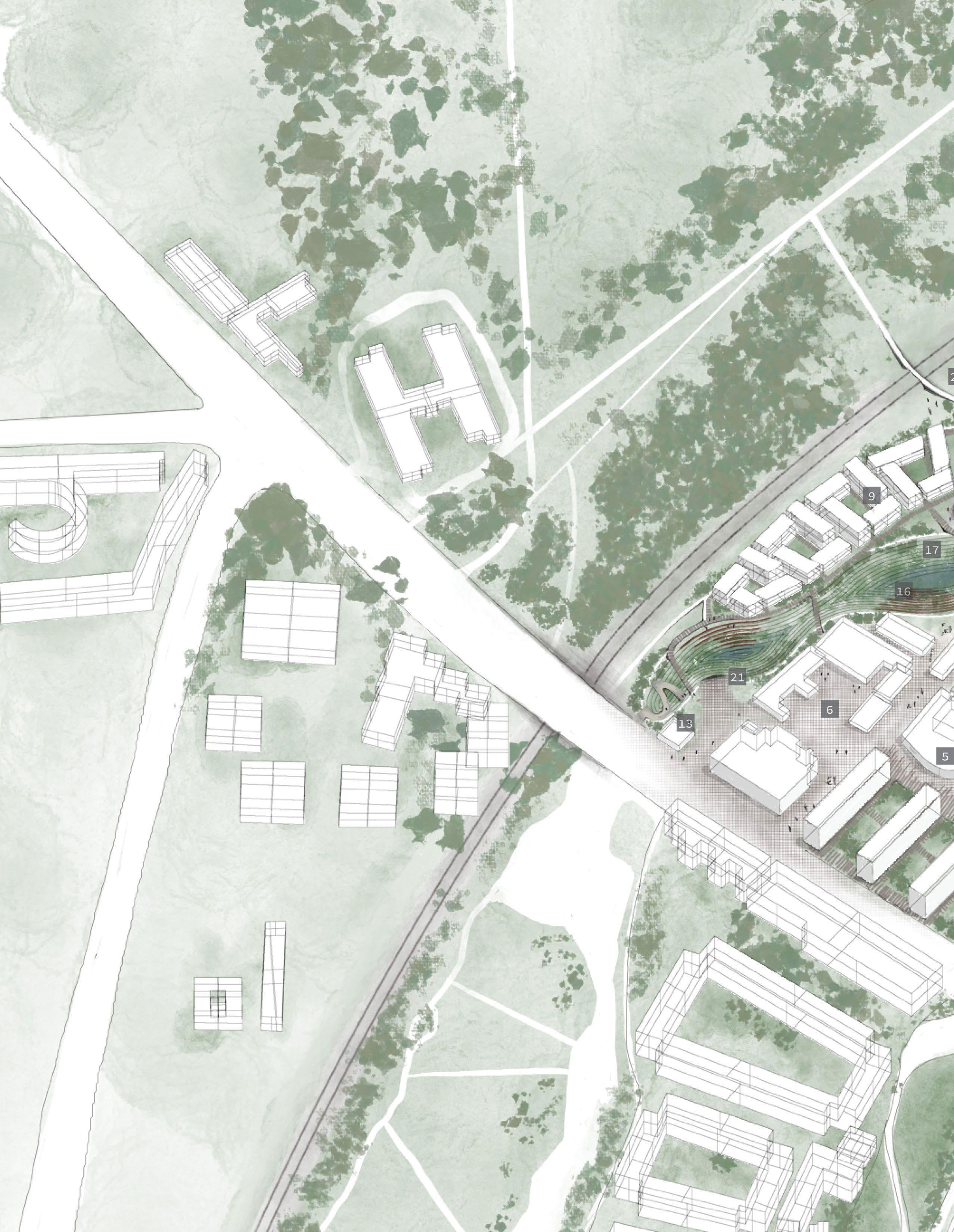
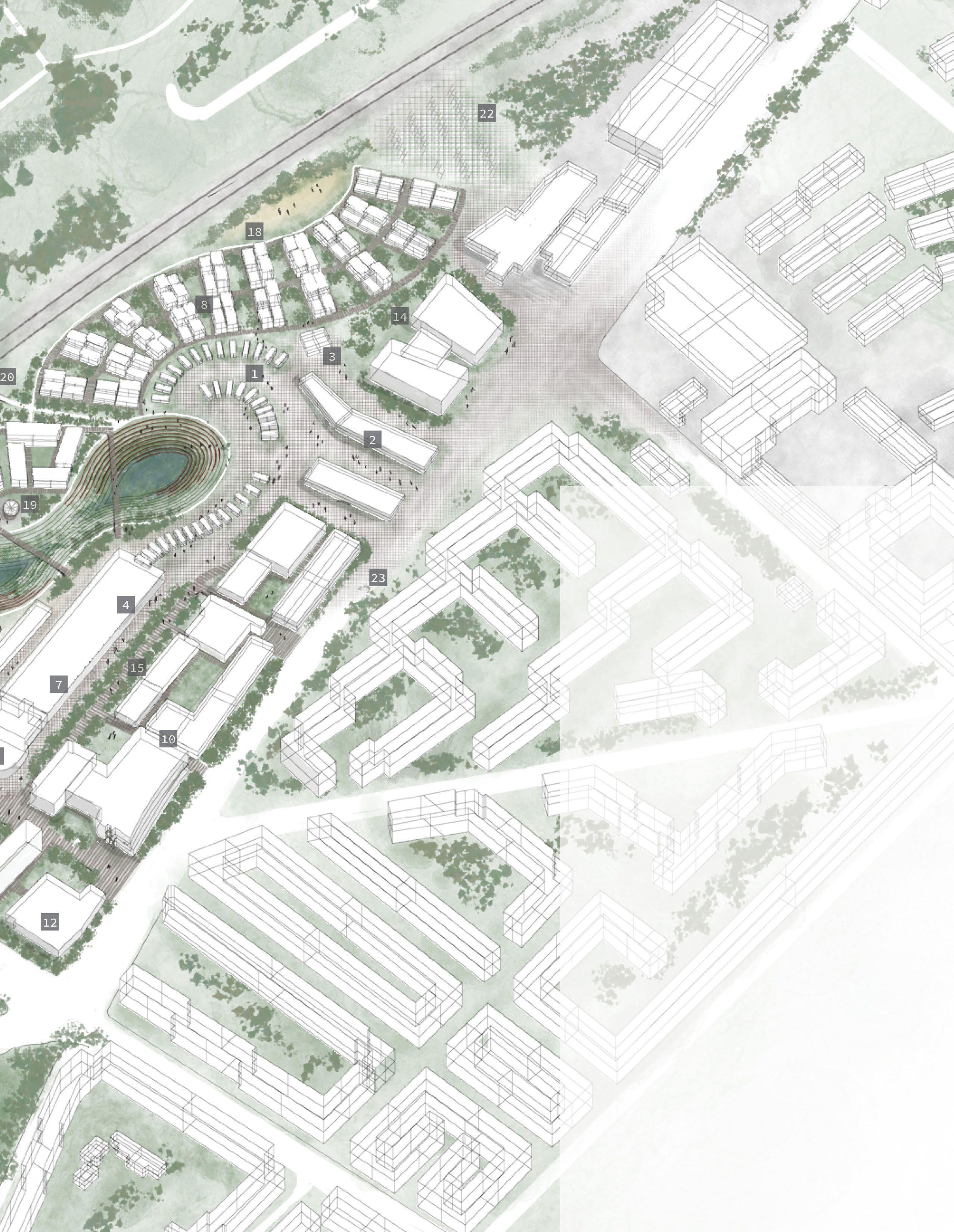
1. Shipping Container Food Market
2. Farmers Market
3. Community cafe
4. Secondhand Market
5. Supermarket
OFFICE
6. Creative Offices
7. Co-working & Event space
8. Modular Student Housing
9. Single Family Affordable Housing
10. Modern Loft Housing
11. Hike & Bike Trail (1.6km)
12. Public Courtyard
13. Skatepark extension
14. Shared Green Space
15. London Plane Tree Promenade
16. Terraced Seating
17. Educational Community Bioswale Plantings
18. Sand Volleyball
19. Gazebo
20. Bridge to Lersøparken
21. Underground Parking
22. Green Paver Parking
23. Shared Pedestrian Car Street & Plaza
Retention Pond

In 2011, Copenhagen was hit by a 1000-year-storm event with subsequent cloudbursts in years after. As a result, the 2012 Cloudburst Management Plan was created, promoting green infrastructure. This retention pond park echoes Copenhagen’s drainage initiative.
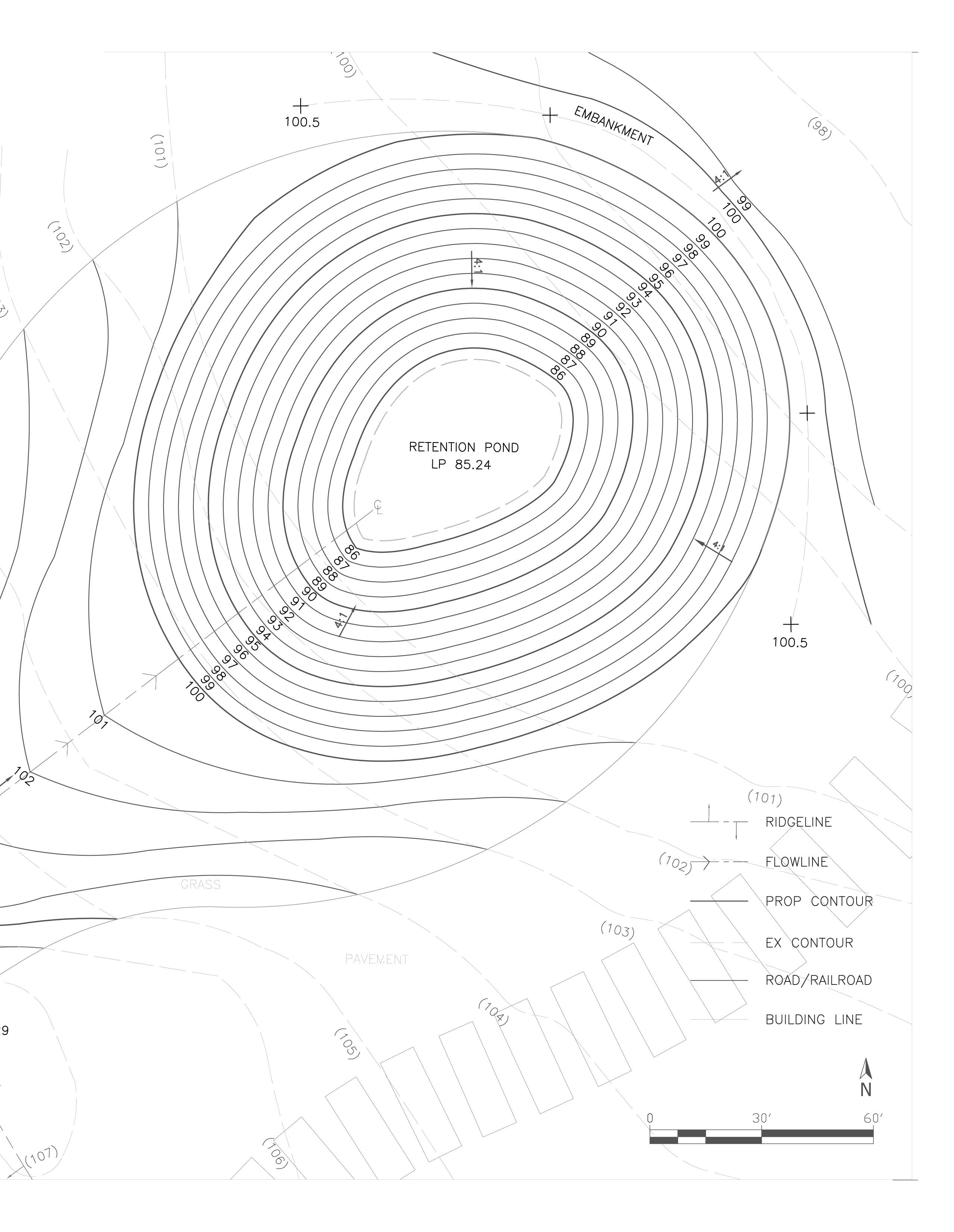
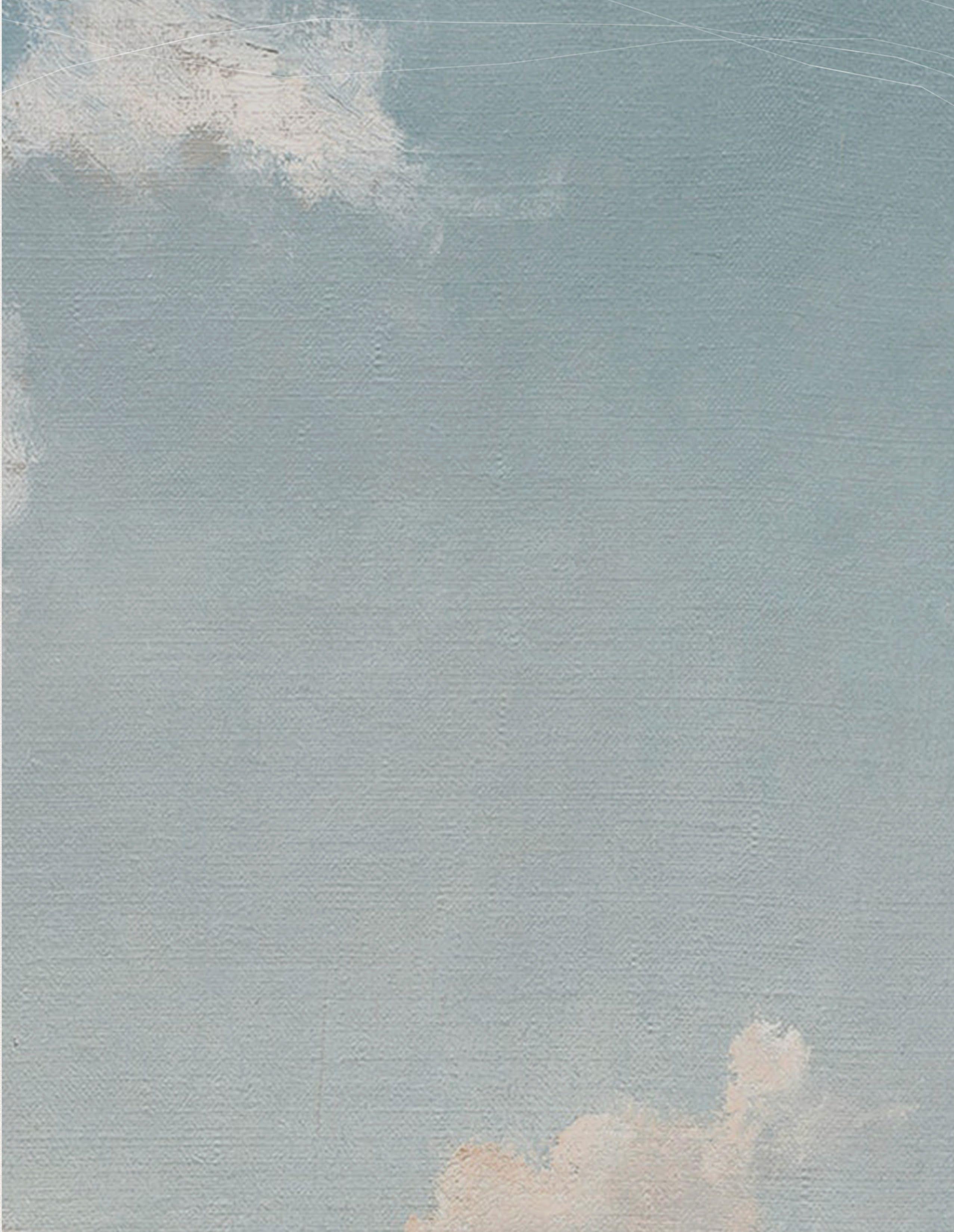
Cornell Seismic Design Spring 2024 Seattle, Washington
Cornell Seismic Design is a project team that designs, builds, and tests a 5 foot-tall balsa wood model to survive seismic groud motions. In 2024, we competed in an international earthquake engineering competition where we won 1st place overall.
The challenge was to create a building in Seattle, WA that adhered to a multi-tiered cantilevered shape. The architectural form is inspired by Tacoma-native Dale Chihuly and his glass art. The name, Mille Fiumi translates to “a thousand rivers” in Italian, symbolizing the flowing nature of these countless wood beams and paying homage to the tradition of glass blowing in Murano, Italy.
Served as Architecture Lead for team of 5
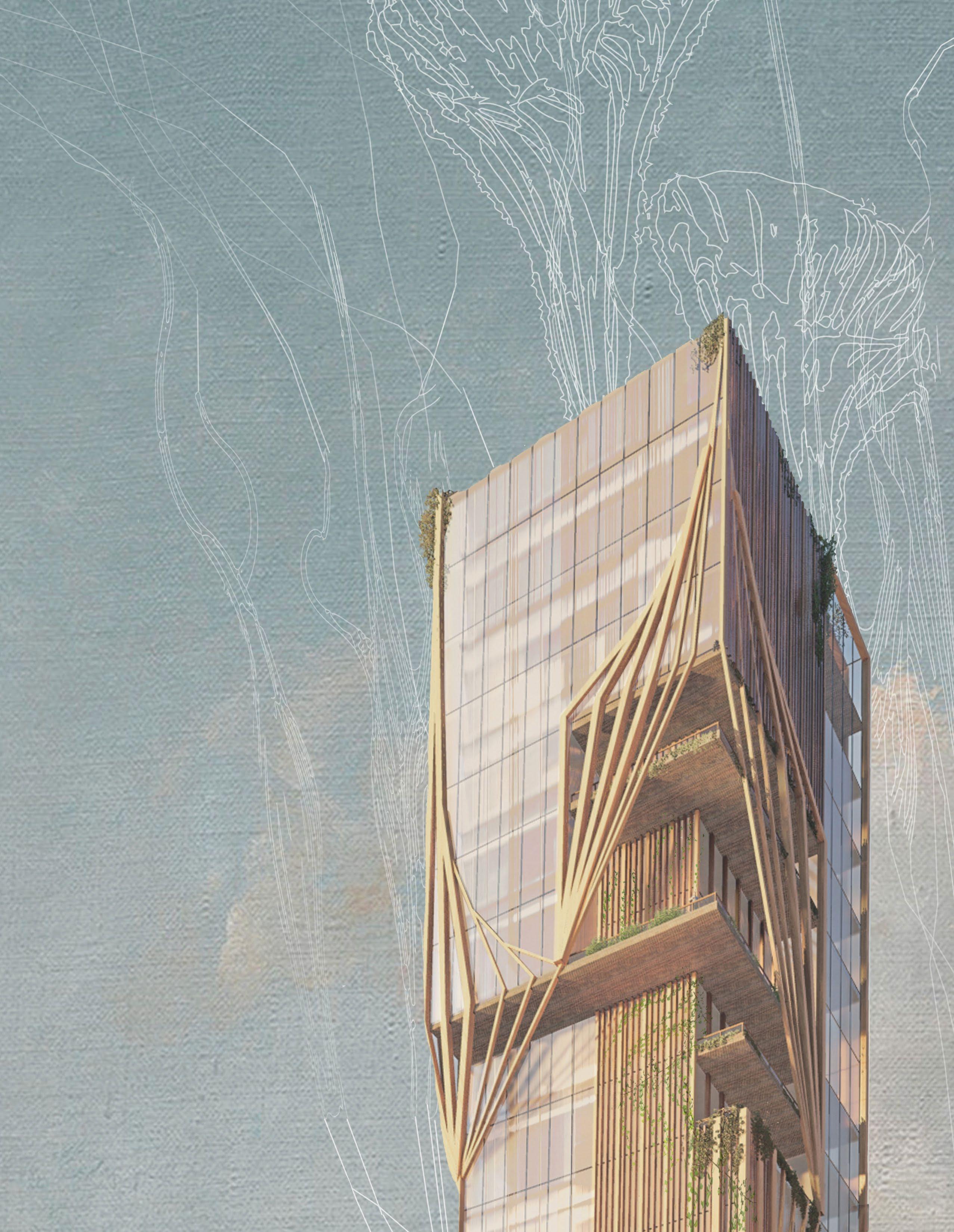
Lines and curves from Chihuly’s glass art are extrapolated to envelope building edges. These forms are realized by a network of slender wood beams, embracing the Pacific Northwest’s timber construction.

Solar Form Finding

LA 3010
Fall 2023
Ithaca, New York

In American culture, milk is often seen as a magical white drink that can do no wrong. The dairy industry has always had a huge advertising presence in the US -- got milk, the milk mustache, just to name a few. However, since WWI, the US has had a huge dairy surplus, with the current cheese stockpile at 1.5 billion pounds. The government also funds a milk marketing agency that partners with fast food chains. Further research on this information raises questions about our perception of milk: How healthy is milk actually? Are humans naturally lactosetolerant? How does milk production impact the environment? What about the recent rise of plant milk? What type of dairy is the best for us? Milk Memoirs: A Tell All attempts to tackle the history of milk from its origin to current day, in the name of uncovering the truth behind milk.
Partner: Minnue Uhm
